Labour would presume in favour of franchising
Take Back Control Act would streamline path to greater bus powers with a presumption in favour of franchising for all local transport authorities
The Labour Party has announced plans to take significant steps to reform bus services in England if it wins the next general election, claiming that “decades of failed deregulation have left communities with little say over the essential services they rely on”.
Pointing to new data that suggests thousands of bus services have been lost in recent years, with over 1,000 services cut in the past year alone, shadow transport secretary Louise Haigh said Labour would “reform the country’s broken bus system and hand power and control to local communities”. She announced plans for a Take Back Control Act
NEW FLIXBUS EXPANSION
Global coach giant launches new routes
FlixBus launched a major UK service expansion on April 27. Speaking to PassengerTransport in Edinburgh last week, FlixBus UK managing director Andreas Schörling said there was strong demand for coach travel. “If you compare with train or low cost flights, it’s like first class. It’s a fantastic way to travel ... When people try coach they come back.”
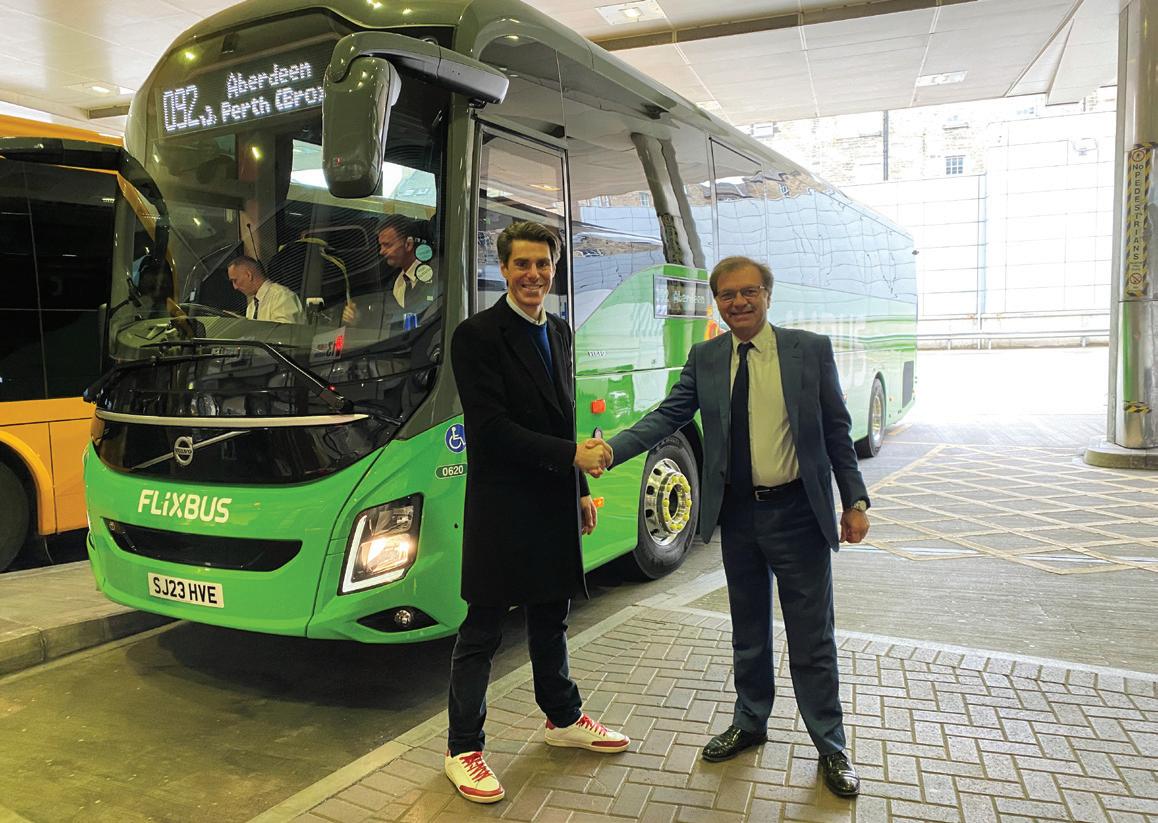
FULL STORY: PAGE 7
FORTEVERYNIGHT
HS2 Ltd chief is grilled
as part of the first King’s Speech of a Labour government. The proposed legislation would give local communities more control over public transport in their area. This reform would: Extend the chance to franchise bus services to every community;
Introduce a presumption in favour of franchising to halt delays; Lift the legal ban on setting up new municipal bus companies
introduced by the government in the 2017 Bus Services Act.
Launching the policy last week, Haigh said: “Labour will fix our broken bus system - and we’ll do it by giving power and control of bus services to the communities who depend on them.”
The government introduced bus franchising powers in the 2017 Bus Services Act, but Haigh’s plans drew scorn from buses minister Richard Holden. He said: “They want bureaucrats to run bus services instead of bus companies and, with no mention of funding, it’s council taxpayers who will end up paying.”
MORE ON PAGES 16-17, 25
10
ALBUM Conference hears about benefits
Buses
16
Norman Baker looks at Labour’s bus plans
Making
most of our open top buses
18
Alex Warner sees a growth opportunity
builder 26
ISSUE 288 5 MAY 2023 NEWS, VIEWS AND ANALYSIS FOR A SECTOR ON THE MOVE
“They want bureaucrats to run bus services”
Richard Holden
‘Accessibility is good for business’
Cost of Euston only revealed
last year
by MPs 04
are in reverse - who has a plan?
the
New Wrightbus chief executive
NEWS COMMENT
Former Lotus CEO joins bus
CAREERS
Pictured in Edinburgh last week: Andreas Schörling of FlixBus UK
COMMENT NEWS EXTRA
(left) and Domenico Bondi, MD of Volvo Bus UK & Ireland

Industry leaders are prioritising accessibility
IN THIS ISSUE
15 T FG M SELECTS
T ICKETER FOR ET M S
TransportforGreaterManchester hassignedacontractwithTicketer toprovidenewticketmachines acrosstheregiontosupportthe deliveryoftheintegratedBee Network.Themachineswillberolled out fromlaterthisyear.
12
Robert Jack Managing Editor
The ALBUM Conference is a consistently good event but the 2023 edition was especially good. I’m not just saying that because it was hosted in Edinburgh, where I live, by Lothian Buses. The 300 attendees, of which half were operators, were treated to a strong line-up of speakers, a lively exhibition, a display of state-of-the-art vehicles with the spectacular Usher Hall in the background and a busy social programme. So I was surprised that one of my personal highlights was a panel discussion about accessibility, accompanied by a presentation about new rules and regulations - but here’s why.
First and foremost it was the quality of the speakers. Claire Walters, CEO of Bus Users UK, admitted that the UK-wide Accessible Information Regulations could be “coma inducing” but she held the attention of the room throughout as she explained them. These new regulations are going to generate a lot of work over the coming years but the end result will be a consistent standard that users can rely on. Meanwhile, it was great to hear about the work of two accessibility officers, Olivia Sklenar of Lothian and Victoria Garcia of Brighton & Hove. Their companies have recognised that accessibility is not just ‘a good thing to do’ - it’s at the core of their businesses. Indeed, no significant decision at Go-Ahead-owned Brighton & Hove by-passes Victoria’s department (see pages 10-11 for full report). Like health and safety, accessibility is being built into decision-making.
PASSENGER TRANSPORT editorial@passengertransport.co.uk
forename.surname@ passengertransport.co.uk
Telephone: 020 3950 8000
Managing Editor & Publisher
Robert Jack
Deputy Editor Andrew Garnett
Contributing Writer Rhodri Clark

Directors Chris Cheek, Andrew Garnett, Robert Jack OFFICE CONTACT DETAILS
Passenger Transport Publishing Ltd PO Box 5496, Westbury BA13 9BX, UNITED KINGDOM
Telephone (all
F IRST BUS INVESTS IN SOLAR AT 20 UK SITES
FirstBushasinvested£2.5min solarpowerwiththeinstallationof over6,000solarphotovoltaic(PV) panelsacross20depotsitesaspart ofitsnetzeroemissionsstrategy. Theinvestmentispartofapledgeto reduceemissionsfromitsoperations.
EDITORIAL editorial@passengertransport.co.uk
ADVERTISING ads@passengertransport.co.uk
SUBSCRIPTIONS subs@passengertransport.co.uk ACCOUNTS accounts@passengertransport.co.uk
13
T RANS P ENNINE IS FIRST TO B E CAR B ON L ITERATE TransPennineExpresshasbeen formallyrecognisedas‘Carbon Literate’.ItisthefirsttimeaUKtrain operatorhasachievedthestandardset bytheCarbonLiteracyTrustandisthe firststepinalong-termplantoenhance TPE’senvironmentalapproach.
22 R EPORT SETS OUT A HUGE CHALLENGE
TheTUCrecentlypublishedareport intothevitalrolethepublictransport sectorcanplayintacklingtheclimate emergency.“Ifanygovernmentis lookingforameansoflevellingupand economicgrowth,thisreportoffersa soundbasis,”says Nick Richardson.
REGULARS

enquiries): 020
8000
3950
Passenger Transport is only available by subscription. Subscription rates per year; UK £140 (despatch by Royal Mail post); Worldwide (airmail) £280 The editor welcomes written contributions and photographs, which should be sent to the above address. All rights reserved. No part of this publication may be reproduced in whole or in part without the publisher’s written permission. Printed by Cambrian Printers Ltd, Stephens & George Print Group, Goat Mill Road, Dowlaid, Merthyr Tydfil CF48 3TD © Passenger Transport Publishing Ltd 2023 ISSN 2046-3278 SUBSCRIPTIONS HOTLINE 020 3950 8000 PASSENGER TRANSPORT
Box 5496, Westbury BA13 9BX 020 3950 8000 editorial@passengertransport.co.uk CONTENTS www.passengertransport.co.uk 5 May 2023 | 03 ORGANISATION PAGE ALBUM 8,10-11 AlexanderDennis 12 AdventureTravel 9 ASLEF 5 BelleVue 6 Brighton&HoveBuses 10-11 BusUsersUK 10-11 CPT(UK) 8,10-11 D&G 6 DiamondBus 6 FirstBus 12,15 FirstManchester 6 FlixBus 1,7 GMCA 6 Go-AheadGroup 8 GoNorthEast 8 HS2Ltd 4 LittleGem 6 LNER 9 Lothian 10-11 McGill’s 7 Metrolink 6 NationalExpress 7 NorthernRail 9 OfficeofRailandRoad 5,9 RailDeliveryGroup 5 RMT 5 ScotRail 9 SouthWesternRailway 5 StagecoachLondon 12 StephensonsofEssex 8,10-11 TASPartnership 8 Ticketer 15 TransPennineExpress 5,9,12 TransportforGreaterManchester6,15 TransportforWalesRail 9 TrawsCmyru 9 Wrightbus 12
PO
NEWS 04 NET ZERO 12 INNOVATION & TECH 15 COMMENT 16 GRUMBLES 25 CAREERS 26 DIVERSIONS 28 HAVE YOUR SAY Contact us with your news, views and opinion at: editorial@passengertransport.co.uk
Cost of HS2 at Euston only revealed last year
HS2 Ltd chief executive Mark Thurston told MPs last week that the actual cost of plans for the Euston terminus only really became clear last autumn
HS2
Members of the House of Commons’ Public Accounts Committee scrutinised the HS2 project at a hearing last week, where HS2 CEO Mark Thurston and Department for Transport permanent secretary Bernadette Kelly were grilled over cost overruns and delays to the Euston leg of the high speed rail route.
The station redevelopment has been a particularly contentious aspect of the project, with concerns raised over the significant cost of the scheme, which could reach £5.9bn, according to the PAC. This is significantly higher than the previous estimate of £3.3bn, which had already been described as “eye-watering” by the committee.
During the hearing, Thurston and Kelly were questioned about the lack of transparency over the Euston station costs, with committee members accusing HS2 of hiding the true extent of the cost overruns.
Kelly defended the company, stating that the £5.9bn figure had not been visible at the time of the last parliamentary report in October 2022, but acknowledged that HS2 had previously reported a “point estimate” of £3.3bn, with a range of £2.6bn to £3.6bn.
Thurston admitted that the redevelopment of Euston station was “challenging”, but maintained that the project remained within budget. He also stated that the increased cost estimates were the result of “inflationary
pressures” and increased safety requirements, as well as changes to the design of the station.
He also revealed that a full 3D model of the Euston design had only been completed at the end of October 2022 and that meant only then did HS2 Ltd “have the most comprehensive and most confident estimate that we have ever had on Euston [costings]”.

Thurston also said the Euston project was “not just about building 10 platforms for HS2”.
“This is, frankly, the biggest railway and transport terminus that we are going to build in London for some years,” he said.
“We have a major interchange to the Underground network. We have a significant interface with the existing Network Rail station. We need to accommodate, as part of the plan for Euston, an over-site development that will be somewhere in the order of over half a million square metres of development space for retail, commercial and residential.”
He told MPs that these complex interfaces all played a part in the budget for the station.
Thurston continued: “We have been working on that for three years now, and we have got to a point where we have the estimate that is in the NAO Report, which is by far and away the most comprehensive, most detailed and most confident estimate that we have.
“This is a major transportation terminus that is more than just 10 platforms and certainly more complex than, for example, what
we are doing at [Birmingham] Curzon Street, and that needs to be considered.”
Committee chair Meg Hillier probed further on the model developed to cost the Euston project. She said she recognised it was a “very complex site”.
Thurston explained that they started designing the 10-platform version of the station in the spring of 2021, and concluded the work in the autumn of the same year. However, it was only after the design was completed, and a contractor priced it, that they discovered the cost and “candidly, it was only until we got to the autumn of last year” that the costs were fully understood.
Thurston dismissed assertions that the project was “gold-plated” and “a whole series of affordability challenges and sprints” had subsequently generated savings in the order of £300m to £500m.
Despite this work the final cost was still much higher than anticipated and HS2 Ltd had explored options for cost reduction. The next phase of that process would involve looking at a range of options to simplify the design and adjust requirements.
Kelly drew ire from Hillier when she suggested officials would need to test all their assumptions about patronage as a result of the impact of Covid-19 on rail use. “Passenger flows have definitely dipped now, but this is a 100-year project.” responded Hillier sternly.
Meanwhile, Kelly also confirmed that although the over-site development at Euston was not funding the station, the income generated from the new buildings would help pay for the project’s cost, so reducing the number of buildings was not an option. Instead she said other possibilities would have to be explored to make the Euston terminus more affordable.
NEWS ROUND-UP 04 | 5 May 2023 www.passengertransport.co.uk
“This is a major transportation terminus that is more than just 10 platforms ”
Thurston dismissed assertions that the Euston design was ‘gold-plated’
Harper still mulling over future of TPE
Transport secretary tells MPs that ‘no option is off the table’
PERFORMANCE
Transport secretary Mark Harper has said he is considering whether or not to renew the contract of TransPennine Express, whose National Rail Contract is due to expire on May 28.
Speaking at an evidence session of the committee to probe his work as secretary of state, Harper was asked by Mike Amesbury, the Labour MP for Weaver Vale in Cheshire, whether he was actually considering extending TPE’s contract, which was signed in May 2021, despite the widespread criticism the train operator has attracted in recent months from passengers and politicians alike. Harper said that “no option is
DIESEL ISSUE HITS SWR SERVICES
Clogged fuel filters leads to emergency timetable
MAINTENANCE
Train services in the south and west of England have been restored to full timetable after a week of disruption caused by diesel engines clogged with biofuel.
An amended timetable was put in place on April 21, following a problem related to the diesel fuel used by the diesel multiple units that operate services in the Basingstoke, Exeter, Romsey, Salisbury and Yeovil areas.
The problem, which is still under investigation, caused fuel filters on a number of train engines to become blocked, impacting their acceleration and top speed. To restore services as
off the table” because he is “driven by the service that’s experienced by passengers”.
He said he had extended Avanti West Coast’s contract late last year due to their improved performance and he would use the same approach to evaluate TPE’s performance and make a decision on their contract renewal.
Harper continued: “I have to be careful about making a decision that is legally defensible.
“I have to go through a proper process to look at the evidence in front of me, and when I have made that decision, in the same way that I did with Avanti, I will set it out
in parliament in the usual way. But there is a limit to what I can say today in terms of prejudging, not having taken that decision.
“I have not taken that decision yet. I have to look at all of the evidence in front of me, but I have been clear that I am driven by the service that is experienced by passengers, and no option is off the table.”
Amesbury probed Harper on the controversial use of pre-cancellations or ‘p-coding’ whereby train operators can precancel services as late as 22:00 the previous evening. When p-coded these pre-cancelled services are not included in the timetables that railway performance statistics are measured against.
Figures from the Office of Rail and Road (ORR) earlier this year reveal TransPennine Express’s
cancellation score for the four weeks to March 4 worsened from 7.2% to 23.8% when adjusted to include p-coded services due to a shortage of train crew.
Harper responded on the subject: “You will be aware that the rail minister wrote to the ORR about that. In fact, off the back of that, they made some decisions and directions to rail companies about the proper use of p-coding.
“It will not have led to a different decision being made because we are very clear about the transparency on cancellations and so forth. I think there have been improvements now in what the ORR said about the proper use of p-coding and when you should use different ways of referencing when you have cancelled trains.
“I am very clear, and I made this clear in the House, that the current level of service being delivered by TransPennine Express to customers and passengers is not acceptable.”
soon as possible, engineers at SWR’s Salisbury train care depot have performed enhanced maintenance on all affected trains.
Fuel tanks at the depot, which provide 35,000 litres of fuel to the diesel fleet every day, have been deep cleaned and are also using fresh fuel. These steps have restored train performance, allowing services to be gradually restored.
“It was a difficult decision to amend our timetables and we have worked hard to restore services as quickly as we can,” said Neil Drury, SWR’s engineering director. “We have taken a number of steps to mitigate the problem, which we believe is related to the contamination of diesel fuel. Many of our trains have returned to the levels of performance that we expect.”
MORE RAIL STRIKE DATES REVEALED
Harper hits out at disruption to Eurovision
INDUSTRIAL RELATIONS
Rail passengers face further disruption after the RMT and ASLEF unions announced further strike action over the next two months.
The RMT is re-balloting its members for strike action after discussions with the Rail Delivery Group failed to result in a negotiated settlement on pay, conditions, and job security.
The RMT claims that the RDG has reneged on its original proposals, and the union’s general secretary, Mick Lynch, accused the RDG of caving to pressure from the government. Lynch warned that the RMT would
press ahead with further strike action if its members support the re-ballot.
Transport secretary Mark Harper criticised the RMT’s decision to strike during the final of the Eurovision Song Contest in Liverpool. “The RMT are simply further snubbing the very passengers they serve,” he said.
Meanwhile, ASLEF drivers will strike for three days in May and June over pay and conditions. ASLEF claims that most drivers have not had a pay increase since 2019 and that the union is willing to negotiate on issues that would make running the railway more efficient. However, ASLEF insists that it will not accept modernisation without compensation or a return to harsh Victorian working conditions.
“I have not taken that decision yet”
Mark Harper
www.passengertransport.co.uk 5 May 2023 | 05
“I have to be careful about making a decision that is legally defensible”
Little Gem collapse puts small firms in spotlight
Operator closes as a result of rising costs and uncertainty
INDEPENDENTS
Greater Manchester bus operator Little Gem has gone into administration. Company prioprietor Wesley Goodwin, attributed the company’s failure to rising costs, including fuel and staff costs, as well as the trend towards remote work. Goodwin stated that “the company was losing money” and that he had “no choice” but to shut down. The operator closed on April 21 with just 24 hours’ notice that it would stop running several services in the south Manchester, Trafford, Tameside, and Stockport areas.
Transport for Greater Manchester (TfGM) has placed emergency contracts with First Manchester, plus independent operators
LEIGH PUSHES FOR METROLINK
Wigan Council urges GMCA to prioritise tram extension
LIGHT RAIL
Wigan Council has called for an extension of the Metrolink light rail network to Leigh to be prioritised.
Speaking at a recent council meeting, Dane Anderton, Wigan’s lead member for district centres, proposed that the council should write to the Greater Manchester Combined Authority (GMCA) and Transport for Greater Manchester (TfGM) to bring forward a business case for the inclusion of Leigh in the Metrolink network.
Although Leigh is mentioned in TfGM’s 2040 plan, council members
Belle Vue and D&G for the bulk of the routes affected while longer-term solutions are explored. However, no replacement has been appointed for three of Little Gem’s routes. TfGM claimed the bids received for these routes was more than £500,000 higher than the previous contracts (for the 13-week period).
“We understand the concerns of passengers reliant on those
services previously operated by Little Gem and have worked hard to get them covered in the short and medium term,” said Alison Chew, TfGM’s deputy director of bus services.
“While we have been able to cover most of the services, there are some that will not be replaced right away - either because we’ve not had any bids from operators or the cost to run them is
unjustifiably high.”
The closure of Little Gem has highlighted the challenges faced by smaller bus operators in the Greater Manchester area. Goodwin stated that “there are virtually no small operators anymore,” and that “there is no room for the smaller operatorit’s all for the big boys.” Rising costs, particularly fuel and staff costs, have made it increasingly difficult for smaller operators to compete in the market. He also claimed that the introduction of bus franchising in Greater Manchester was creating uncertainty for driving staff.
Goodwin continued: “I have got everyone jobs - I have done a deal with Diamond Bus. They finished with me on Saturday and started at Diamond Bus on Monday.
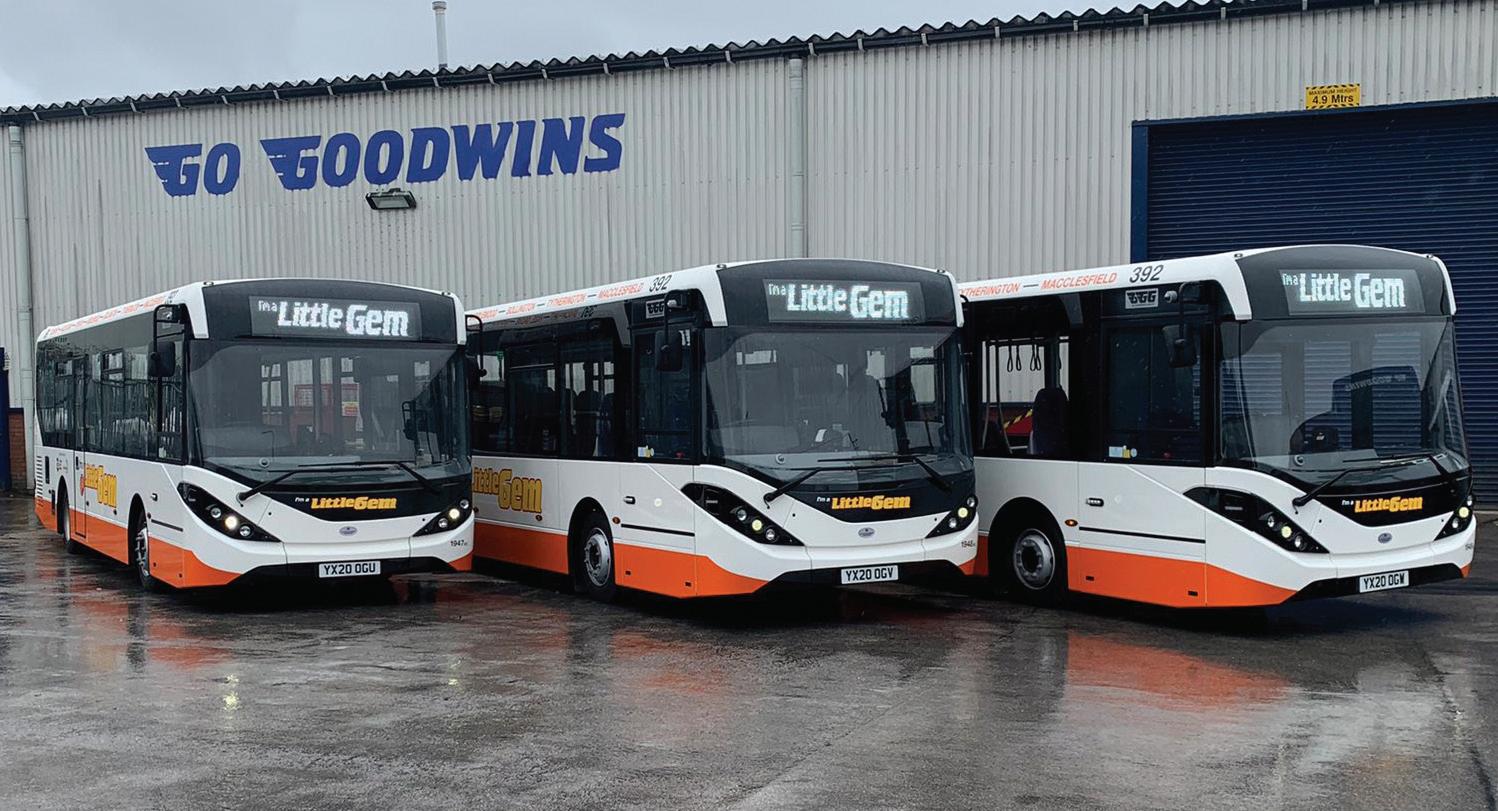
“It’s a sad day for me, it’s a family business. I had no choice, the company was losing money.
“It was just like a rat race really. Insurance was going up. People are working from home. You have got to draw the line somewhere, we can’t carry on.”
fear that the project may not happen quickly enough unless they take action to push proposals forward. The GMCA has outlined plans for the expansion of metro/tram-train services in the region, with potential schemes to extend the Metrolink to Bolton, Wigan, and Stockport.
However, Wigan Council has argued that Leigh has “limitations” when it comes to transport, with residents having to choose between the Leigh Guided Busway or travelling by car to get into Manchester due to limited public transport options.

“Now is the right time to address this,” Anderton told members. “This is the moment we are seeking to bring Metrolink to this borough. This is happening, it’s gone to Trafford, it’s gone to Trafford Park, it’s gone
to Manchester Airport, it’s supposed to be going to Stockport. It’s going north, it’s going south, it’s going east, but it isn’t going west - why? We want to get this as a priority.”
Leigh is one of the largest towns in the North West without a railway station, after the Tyldesley Loopline was axed as part of the Beeching
cuts in 1969. The Leigh-Salford guided busway was launched in 2016 to improve transport in the area using part of the old rail alignment, but following the Covid-19 lockdowns, the frequency of the V2 service on the busway from Atherton was reduced. Since restrictions eased, frequencies have not been restored, leading to claims of overcrowding at peak periods.
Plans have been rolled out for a new railway station in the Leigh constituency, with Golborne seen as the chosen location due to its proximity to an active railway line.
In 2021, £16m was approved by the GMCA for the new station and a further £1m was granted to develop the project. Approval of the project by government is awaited.
Busway is Leigh’s only fast public transport link to Manchester
NEWS ROUND-UP 06 | 5 May 2023 www.passengertransport.co.uk
Little Gem closed on April 21
FlixBus launches major network expansion
Chile is next. So it has plenty of experience of running large scale networks, and the company is not short of ambition.
NATEX LAUNCHES EXPANSION PLAN
New links will see 130 vehicles added to fleet
COACHES
EXPRESS COACHES
FlixBus launched its expanded Scottish network last week with celebrations and free cake at Edinburgh bus station.
The move comes not long after the global intercity coach service brand celebrated two anniversaries - its second anniversary in the UK market and the tenth since it its creation.
The expansion in Scotland, undertaken in partnership with operator McGill’s, Scotland’s largest independent bus operator, marks a five-fold expansion.
The partnership between McGill’s and fast-growing FlixBus began in 2021, fuelled by a joint ambition to disrupt the coach market. McGill’s has added 18 high specification Volvo 9700 coaches to its FlixBus services, in addition to the existing seven vehicles.
Across the whole of the UK, Flixbus will have twice as many services this summer as it did last summer, when it celebrated its one millionth UK customer, and is being promoted with £2 tickets to mark the two-year UK anniversary. FlixBus has outperformed its forecasted UK figures this year, almost doubling passengers (94% increase) carried in April-September 2022, compared to the same period in 2021.
Globally, FlixBus is already the world’s largest intercity coach provider. It is present across Europe and the purchase of Greyhound last year made it the largest in North America. It is already operating in Brazil and
Speaking at the Edinburgh bus station launch last week, Andreas Schörling, managing director of FlixBus UK told Passenger Transport: “We were very clear when we entered the UK market that we are here to build the largest intercity coach network in the UK. It’s going to be a five-year project. We are strategically patient, but that is the clear vision that we have.
“The first two years have been, I would argue, almost beyond expectation. We’ve seen phenomenal uptake from passengers. There is massive demand.”
The striking FlixBus brand is backed up by sophisticated online retail channels and a marketing message that focuses on coach as an affordable, reliable and sustainable mode of transport. Born in the digital era, the company has created from scratch an offering that appeals to new demographics.
Schörling said: “The mission that we have as an organisation is to provide smart and green transportation to everyone, everywhere ... I think, as an
industry, coach has not made a strong enough case for how good a solution it is. I think that is something that we at FlixBus have an opportunity and the tools to change.”
He continued: “In the UK there has been a bit of a mindset that it is just certain demographics that travel with coach, and what we are seeing across Europe, across the US and all our other markets is that by being a digital native, being able to use marketing channels, communication channels where a broader proportion of the population is, actually attracts them into coach because ... it’s affordable, reliable and sustainable. When people know about it they come.
“The reason we don’t have such a diversified demographic in the UK is a failure of communication.”
Schörling spoke of the importance of the partnerships with Volvo and McGill’s (an announcement about a further partner operator will be made soon). All three of these companies agree that coach is an unsung hero of transport and that government could do more to support the sector.
“What we are looking for is a level playing field,” said Schörling. “There is so much support coming into the trains and to the railway system in terms of infrastructure, in terms of tax subsidies, in terms of financial subsidies, and coach really gets nothing.
“Small and medium-sized coach operators are the unsung heroes of the transportation industry. Whenever something goes wrong people always look to coach.”
National Express has announced growth plans for its UK coach network with an emphasis on fast and frequent links. It has confirmed 15 new routes will launch and 130 new vehicles will be added to its fleet. The expansion will take the network’s capacity up to 11,000 journeys across the country each week.
The growth plans come after National Express experienced a surge in customers in 2022, with over 16 million people travelling on its services - up 10 million from 2021. Factors such as the Queen’s funeral, the return and growth of music festivals, and rail strikes are all believed to have contributed to the uplift in patronage.
As strikes and rising motoring costs continue to impact traveller behaviour, National Express said coach travel is increasingly being seen as a more attractive alternative. The reliability of coach services and their better value have resulted in 10% switch of rail users to coach.
Ed Rickard, service delivery director for National Express, said: “More and more customers are turning to coach for great value, reliable and sustainable travel. It’s encouraging to see customers making the switch from other modes of transport and choosing our coaches. With our record customer satisfaction scores, they clearly like what they’ve seen, which gives us confidence that demand is there.”
The new routes include new direct services between Luton and Stansted Airports with central London; Edinburgh and Glasgow to Liverpool via Carlisle and Manchester; Leicester to Derby via Nottingham; and Poole to Gatwick Airport via Bournemouth, Southampton, and Portsmouth.
‘We are here to build the largest intercity coach network’
“What we are looking for is a level playing field”
“We’ve seen phenomenal uptake from passengers. There is massive demand”
www.passengertransport.co.uk 5 May 2023 | 07
Andreas Schörling
Survey shows bus fares ‘great value for money’
The £2.47 average single fare is cheaper than it was in 2019 FARES
Despite rising inflationary costs for operators, the 2022 National Bus Fare survey suggests that the bus remains good value for money for passengers, with the average price of a single ticket costing £2.47 - substantially less than the average price of a takeaway coffee.
A cup of coffee cost £2.56 a year ago but £2.86 today, based on Office for National Statistics price data for a takeaway latte. In contrast, the average single bus fare has fallen by 0.1% over the last three years as a result of low fare schemes in Cornwall, West of England, Manchester, Merseyside and West Yorkshire.
The survey also highlighted that contactless payment technology, which helps beat the queues to board a bus, as well as a greater variety of tickets on offer, is improving the customer experience for passengers. This follows a change in people’s travelling habits since Covid.
The latest data was gathered by transport specialists The TAS Partnership, which analysed 1,242 sample three-mile bus journeys across Great Britain, excluding London, during September 2022.
The report found the lowest single fare for an adult travelling three miles was offered by Richards Bros in Fishguard, at 90p. The operator also had the lowest average single fare at £1.25.
Taking the bus in 2022 was also far cheaper than running a car, with a weekly bus ticket representing just under 3% of the
weekly wage and a private vehicle, over 9% (without including finance or congestion charges).
Stagecoach North Scotland’s Peterhead Megarider was the cheapest weekly ticket sampled at £9.60.
TAS senior consultant Matthew Moll said: “The bus sector continues to adapt to changes in technology, demand and political thinking. The last year has shown that operators have continued to absorb cost increases with average weekly ticket price increasing by only 7.5% since 2019 compared to a 19.7% increase in RPI.”
Graham Vidler, CEO of the Confederation of Passenger
Transport, commented: “Despite inflationary pressures operators are facing, travelling by bus remains great value for money for existing passengers and those looking to save money or change their travel habits, with the average weekly ticket costing less outside London than within it. “Not only can people travel in comfort, but key investment made by bus companies means that now all journeys can be made using contactless payment.”
Bill Hiron, managing director of bus company Stephensons of Essex and chair of ALBUM, which represents independent and municipal bus companies,
MEAN SINGLE FARES: CURRENT PRICES, 2009-2022
Source: 7th TAS National Bus Fares Survey: 2022 (April 2023)
said: “We spend much time convincing politicians and other stakeholders of the benefits of good bus services, and it is only with accurate data that we can make our points hit home. Work such as this is invaluable in providing the ammunition we need in shaping the debate.”
37% of sample journeys covering 41 operators could be paid for via a Tap-on Tap-off (TOTO) contactless capping system. Most operators offering TOTO did not offer any discount on day and weekly travel over the purchase of a day or weekly ticket by cash. However, capping ensures that passengers pay no more than the cost of day or weekly tickets. This contrasts with mobile ticketing with an average discount of 2% for a weekly mobile ticket compared with buying a ticket when boarding a bus. Go-Ahead offered the highest operating group discount of 8% and the highest individual product discount of 19% for Go North East’s Tyne & Wear sevenday ticket.
Flexible or carnet tickets, where multiple individual tickets are purchased in bulk, have become more popular since Covid. This is a response to the perceived change in working patterns. There are no industry-wide standards for product type or discount, however the most common are day tickets in bundles of five and 10, with 62% and 31% of sample journeys able to be made with these products respectively.
On average, a five-day carnet offered 20% discount over buying five individual day tickets, with First Bus offering the highest average discount at 25%. The 10-day carnets offered on average 23% discount with Stagecoach offering an average of 30% discount over buying 10 individual day tickets.
2009 2019 2022 2022 v 2022 v MEASURE FARE FARE FARES 2019 2009 Average £1.75 £2.48 £2.47 -0.1% +41% Minimum £0.50 £0.85 £0.90 +5.9% +80% Maximum £3.50 £5.00 £4.50 -10% +29% Sample (n) 804 1,093 1,242 £2£2.49 £2.50£2.99 £3£3.49 £3.50£3.99 > £1 £1£1.49 £1.50£1.99 £4£4.49 £4.50 + 1 5 114 534 20 3 362 154 49 DISTRIBUTION OF
Source:
TAS National Bus Fares Survey: 2022
2023)
NEWS ROUND-UP 08 | 5 May 2023 www.passengertransport.co.uk
SINGLE FARES, 2022
7th
(April
AVERAGE = £2.47
T1C sustained without value assessment
Aberystwyth-Cardiff service was rescued again last month
FUNDING
The Welsh Government has awarded several contracts for a highly subsidised coach service without once completing an assessment of value for money.

When the T1C TrawsCymru coach between Aberystwyth and Cardiff was rescued again last month, the government said the daily service was “popular”. But a Freedom of Information request has revealed that last year it was used by just 31 people per day on average. It duplicates rail and other TrawsCymru bus routes - all subsidised by the Welsh Government - which are used by many more passengers.
The government created the T1C in 2016 after local operator
TFW RAIL TOPS PRE-CANCELLATION TABLE
PERFORMANCE
Transport for Wales Rail has leapfrogged TransPennine Express to take the unenvied top spot in the pre-cancellation table, following the temporary withdrawal of most of its Class 175 long-distance trains in early March.
New statistics from the Office of Rail and Road reveal that in period 13 of 2022/23 (March 5 to 31), TfW Rail pre-cancelled 921 services in full as a result of shortage of available rolling stock. This included the complete
Lewis Coaches withdrew a similar service. It promised at the time to “review the service in six months to ensure it’s running as effectively as possible and is a viable long term solution”. In 2017 it admitted that the service “is not as popular as we might have expected” but continued to provide subsidy. The service was suspended during the Covid-19 pandemic but was restarted, despite the difficult financial climate for
the bus industry and reductions in services for communities which have no public transport alternatives. Adventure Travel withdrew from the contract at the end of March, but the government awarded a new contract to Mid Wales Motorways which commenced last month. In a Freedom of Information Act request, the government was asked for all assessments of value for money for the T1C service which have been carried out at any time since 2017. The government had no such assessments to provide. It said it had provided funding to Transport for Wales to examine potential further improvements to strategic public transport links between North and South Wales. Consultants will look at the existing T1C service with a view to identifying options “to make the service more attractive to
longer-distance passengers”, and this work is ongoing.
In 2022, the T1C carried 11,260 passengers, an average of about 15.5 passenger per vehicle journey. The government has no data on the average length of passenger journeys on the T1C. It is possible that many journeys are short hops to and from the nearest town and that the vehicle runs empty on some journey segments.
Last year, the cost to the Welsh Government of funding the T1C operating contract was £167,841, including Bus Emergency Scheme and Bus Services Support Grant payments to Adventure Travel. The subsidy per passenger was £14.91.
In 2019, the government’s policy of continuing to fund the T1C gave rise to concerns in the Welsh bus industry over how bus services would be managed after the introduction of bus franchising (PT217). Since then, the government has published proposals for franchising to be introduced everywhere in Wales, with alternatives such as partnerships excluded.
withdrawal of services on some lines, including the Wrexham-Bidston line.
A further 362 TfW Rail services were pre-cancelled in part, enabling units to turn around short of their usual destinations. The disruption was not limited to lines where Class 175s usually operate, because other units were transferred to cover the shortage on flagship routes such as Cardiff to Manchester.
Despite having significantly fewer services to resource each day, TfW Rail also suffered some shortages of train crew. This caused a further 93 full pre-cancellations and 52 part pre-cancellations in period 13.
“TfW Rail informed us that the reason for the high numbers of precancellations in period 13 were due to the need to withdraw their entire
fleet of Class 175 trains at short notice, this led to a severe rolling stock shortage,” said the ORR.
TransPennine Express pre-cancelled no services in period 13 as a result of stock shortages, but train crew shortages resulted in it pre-cancelling 583 services in full and 388 in part.
At London North Eastern Railway and ScotRail, pre-cancellation totals were in double digits. Northern Trains pre-cancelled 173 services in full and six in part because of crew issues.
The ORR has asked operators to move away from the use of precancellation in response to shortages in resource availability. Its data does not include services pre-cancelled for other reasons, such as severe weather or unavailability of infrastructure.
Separate statistics published by
TfW Rail reveal a dramatic reduction in the percentage of stations at which 95% or more of the scheduled stops were delivered. This was 52.3% in Period 13, compared with 73% in Period 12 and 95.4% in the prior year.
There was a 15% reduction in TfW Rail passenger numbers in Period 13 compared with Period 12. The impact on passenger revenue was less severe, with a 7.3% reduction to £9.61m.
This week, TfW Rail has not reinstated the shuttle service between Crosskeys and Newport. However, the hourly Wrexham-Bidston train service has been restored, using one Class 150 Sprinter unit and one Class 230 Vivarail unit each day. The scenic Conwy Valley line regained its train service on Easter weekend with new Class 197 units.
www.passengertransport.co.uk 5 May 2023 | 09
A T1C coach in Cardiff
Class 175 shortage sees services withdrawn
‘Better accessibility is good for business’

Last week’s ALBUM Conference featured a discussion about making buses accessible, including new requirements to provide audio-visual information

Making bus services accessible is not just the right thing to do - it’s revenueenhancing. That was the message from a panel session devoted to the issue of accessibility at last week’s ALBUM Conference in Edinburgh.
The session featured two bus company accessibility managers - Victoria Garcia of Brighton & Hove Buses and Olivia Sklenar of Lothian - alongside Bus Users UK chief executive officer Claire Walters, who has long campaigned for better accessibility on buses.
Garcia, who is accessibility and communities manager for
Go-Ahead-owned Brighton and Hove Buses, said that when she first started her role eight years ago it was all about ensuring that disabled people could travel freely on the company’s services.
“What we didn’t realise then which we now realise all these years on is actually not only is it the right thing to do - to ensure that this disabled people can travel, myself being one of those - but it’s actually about it being commercially viable ... What we
found at Brighton & Hove Buses and Metrobus is that ensuring that our services are more accessible for all has actually increased the viability of our business.
“The reason for that is if you just look at what we call ‘the purple pound’, which is the spending power of disabled people. One in five people in the UK are disabled and it’s actually worth billions to the UK economy every year. In fact there’s an estimated £42m a month loss to transport across
the UK by not being accessible.”
Garcia, Walters and Sklenar all made the point that many disabilities may be unseen or temporary, and that the accessibility agenda is about making public transport more accessible for everyone.
For Sklenar, accessibility and inclusion officer for Edinburghbased Lothian, providing audio-visual announcements on all new vehicles since 2015 is not just about people with disabilities.
“We are not just talking about people who are blind or partially sighted, or deaf or hard of hearing,” she explained.
“We are talking about people like me that are not born and bred in Edinburgh and don’t necessarily know our way around.
“Accessibility, if it’s done correctly, and that is the key thing is something that benefits 100% of your customers coming on, from your Average Joe commuter in a suit through to a family that are visiting for the weekend.”
Sklenar continued:
“Accessibility, people so easily see it as those with more visible disabilities, wheelchair users or blind customers with a long cane, and it just goes so much deeper and further than that. I think that’s why it’s so easy for people to not prioritise it when it should be the first thing that you think about when you are designing any aspect of a business.”
Garcia said she had sat in meetings in the past where accessibility had been dismissed, but it is now firmly embedded within the culture at Brighton & Hove. An important part of achieving this has been to require all senior staff to undertake the same training as frontline staff.
“Why? Because if they understand the needs and the requirements on the ground, in the boardroom they are going
10 | 5 May 2023 www.passengertransport.co.uk
The panel (left to right): Victoria Garcia, Claire Walters and Olivia Sklenar
“Ensuring that our services are more accessible for all has actually increased the viability of our business”
NEWS
ACCESSIBLITY
Victoria Garcia, Brighton & Hove Buses
EXTRA
Robert Jack Managing Editor
if it’s
correctly
to be likely to be signing the cheques [for things we need to be doing],” she explained.
The company’s implementation of on-board announcements (or ‘talking buses’) is an example of this approach. “Our previous managing director actually did training with Guide Dogs and made the decision that we were going to be talking buses within 12 months, even though at that time it was going to be within four years,” said Garcia. “Actually we were talking buses within 11 months, because he redirected the finances after seeing how vital it was, not just for people with sight loss but for everyone.”
Garcia and Sklenar acknowledged that Brighton & Hove and Lothian have a scale that offers them the opportunity to employ a dedicated accessibility manager - Garcia also has a colleague working with her four days a week and a third person will soon join the team. But where it’s not possible to employ someone specifically for this task, a champion should be found.
“You don’t need to have me or Olivia, you just need to have someone in your organisation,” said Garcia. “Someone that is going to fight the good fight for accessibility. Before my role I was running customer services and within my role I started to go out and engage and then we realised it was commercially viable.”
Brighton & Hove has changed its management policy so that all decisions need approval from Garcia’s department. “We have realised that the viability of being accessible is across the whole business,” she said. “It’s cheaper to get it right the first time than to go back and retrofit a bus.”
Brighton & Hove and Lothian are leading lights in the sphere of accessibility, but in response to more than a decade of campaigning by Bus
Users UK and other groups the government is mandating all bus operators to provide audio-visual announcements on their services. Walters explained how they will be legally obliged to fulfil a range of criteria on a phased approach between 2025 and 2031.


“I do think it’s about time we got to grips with this,” she told delegates. “You’ve got time. Quite a lot of these regulations will not come into force until 2031 ... So don’t panic, you’ve got time.”
There were differing opinions in the room. Ben Wakerley, managing director of councilowned Warrington’s Own Buses, was not daunted by the challenge.
“I just wonder sometimes if something has gone wrong within the industry that government
has to legislate to get us to do something like this,” he remarked. “I wonder why we are not doing it. In Warrington we have partly done it, but we haven’t done it all either. But it seems like the kind of thing that is a good idea to do and shouldn’t need this [legislation].”
Others, however, including Bill Hiron, chair of ALBUM and managing director of Stephensons of Essex, expressed concerns about the cost of compliance. Tony Depledge, who has been working with ALBUM on its responses to various policies, said: “One of the things I find most disappointing about this is that a lot of it is modelled on what has happened in London, and in London of course everything has been paid for out of public funds because that’s the
way that transport for London works. Outside London is going to be paid for by passengers, either through their fares or through reduced services. And I think we are collectively going to have to be working really hard to make sure that this doesn’t become a financial burden so that existing passengers have higher fares.”
Walters said that it was representations from ALBUM and CPT that resulted in the phased timeline.“It should give you a reasonable amount of time to try and find funding, people and skills to actually get us where we need to be,” she said. “Because those of us who can’t do without this stuff when we are walking around and catching buses really need this to be in place.
70%
of visually impaired respondents have missed a stop because the driver forgot to tell them where to get off (Guide Dogs UK, 2014)
46%
of buses operating local services in England had audio-visual equipment in 2021/22, but only: 25% in England outside London; 34% in Wales; 22% in Scotland;
2031
Final deadline for complying with government’s Accessible Information Regulations.
THE AV CHALLENGE
www.passengertransport.co.uk 5 May 2023 | 11
Olivia Sklenar
Victoria Garcia
“Accessibility,
done
... benefits 100% of your customers”Olivia Sklenar, Lothian
First Bus invests £2.5m in solar at 20 UK sites
Over 6,000 solar photovoltaic panels in place by mid-June
RENEWABLE ENERGY
First Bus has invested £2.5m in solar power with the installation of over 6,000 solar photovoltaic (PV) panels across 20 depot sites as part of its net zero emissions strategy.
This investment is part of First Bus’ pledge to reduce the overall emissions generated by its bus operations, as it looks to achieve the ultimate goal of net zeroemissions by 2050 or earlier. This sits alongside its goal of achieving a zero-emission bus fleet by 2035.

As one of the UK’s largest bus companies, First Bus is on a mission to make its depots self-sustaining - with the solar PV panels enabling the 20 sites to generate their own renewable power for lighting, heating, office equipment and the engineering bays. The move will not only help

local bus operations by reducing costs, it will also significantly reduce each site’s need to draw power from their local grid. The solar PV panels already installed have been fitted to various areas of the roof on site, such as the engineering workshops, covering an approximate area of over 11,000 square metres. At peak output
these will produce some two million kWh of energy a year - enough to power around 700 standard three-bedroom homes. The panels are being installed and fitted by Manchester-based solar PV suppliers CorEnergy UK, with work on many of the sites already underway. The entire project will be complete by midJune.
WRIGHTBUS LONDON ORDER
Stagecoach London will receive 48 Electroliners
ZERO EMISSION BUSES
Bus manufacturer Wrightbus has secured a new order to deliver 48 zero emission buses for Stagecoach in London. The double deck Electroliners will be ready by the end of the year. The deal follows a string of new orders, including a £60m contract to supply 117 battery-electric vehicles for First Bus across the UK.
Ian Gillott, managing director (parts and services) at Wrightbus, said: “It has been a real team effort between Wrightbus and Stagecoach to deliver this exciting deal ... It strengthens the reputation we have forged in the zero emission transport sector and will help play an important part in the UK’s ambitions for decarbonisation.
“Our electric buses - the GB Kite Electroliner BEV and the StreetDeck Electroliner BEV, which is the world’s most efficient double deck batteryelectric bus - are manufactured and assembled at our Ballymena factory, which means support for jobs in NI, and wider across the UK through our domestic supply chain.”
Stagecoach engineering director Sam Greer said: “We are pleased to be adding a further 48 zero emission buses to our fleet in London. The investment we are making in zero emission vehicles will support our strategy to having a zero emission bus fleet across all our operations by 2035.”
Louise Cheeseman, Transport for London’s director of buses, said: “With the help of partners like Wrightbus we are transforming the bus network and London’s air quality to build a better, greener city for all Londoners. By bringing these new electric buses to London, Stagecoach and Wrightbus are bringing us closer to making our fleet, already one of the largest in Europe, fully zero emission.”
NET ZERO 12 | 5 May 2023 www.passengertransport.co.uk
Summercourt Newquay solar panels
GREEN IS GOOD Bus builder Alexander Dennis has delivered the first next-generation Enviro500EV zero-emission double deck buses to KMB in time for the Hong Kong bus operator’s 90th birthday celebration. The striking new design of the buses is enhanced by the vivid green finish that KMB has adopted for these buses under a ‘Green is Good’ slogan
TransPennine is first to be Carbon Literate
The accreditation, awarded by the Carbon Literacy Trust, is internationally recognised and demonstrates recipients are prioritising climate crisis
ACCREDITATION
TransPennine Express has been formally recognised as ‘Carbon Literate’. It is the first time a UK train operator has achieved the standard set by the Carbon Literacy Trust and is the first step in a long-term programme designed to enhance TPE’s approach to sustainability and environment awareness.
Nicola Martin, head of sustainability for FirstGroupowned TPE, said: “I’m delighted that we have been recognised for our commitment to tackle the
climate crisis and maintain our low-carbon culture.
“This accreditation, as a Carbon Literate Organisation, is a visible ‘badge’ that shows our dedication to lead and enable sustainable tourism and transport across the North and beyond.
We’ve achieved bronze and are
well on our way towards silver.”
The accreditation, awarded by the Carbon Literacy Trust, is internationally recognised and demonstrates recipients are prioritising action to tackle the climate crisis.
TPE has cut its carbon emissions by 18% since 2019
and its Nova train fleet, which includes bi-mode and electric trains, helps reduce customers’ CO2 contribution by 77% compared to travelling by car.
But being Carbon Literate is about much more than reducing emissions, and recognises the efforts of TPE to address all aspects of sustainability through improved day-to-day working practices.
Martin added: “More than 85% of our senior management have undertaken Carbon Literacy training bespoke to rail, which gives them the tools and knowledge to take positive action to tackle the climate crisis.
“This is a great step on our journey to be as environmentally efficient as possible, demonstrating our contribution to net zero ambitions, and reducing our negative environmental impacts.”

www.passengertransport.co.uk 5 May 2023 | 13
“More than 85% of our senior management have undertaken Carbon Literacy training bespoke to rail”
Nicola Martin, TransPennine Express
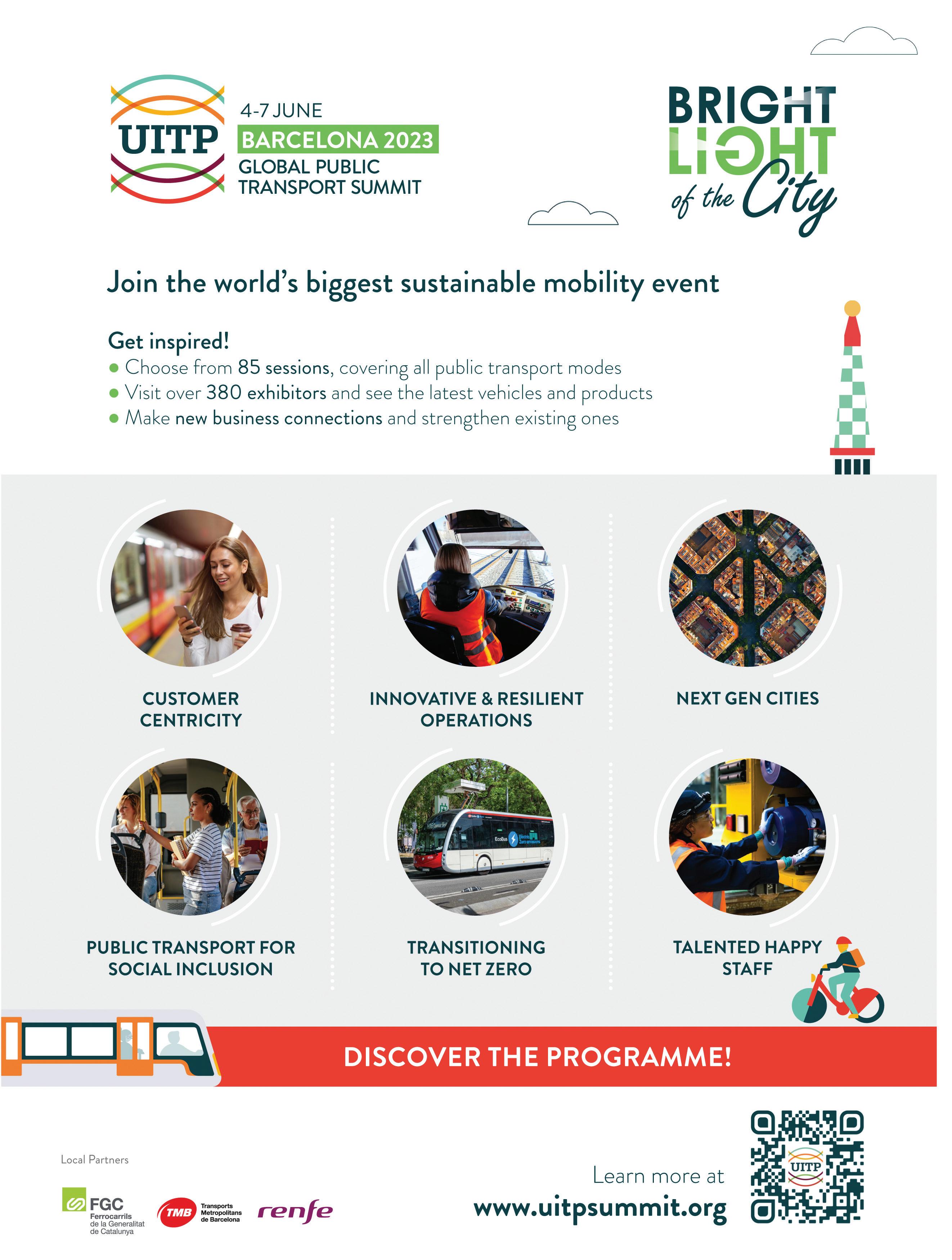
TfGM selects Ticketer for Bee Network ETMs
The electronic ticketing machines will initially be rolled out to the region’s bus network for the first franchised services coming into operation
TICKETING
Transport for Greater Manchester has signed a contract with Ticketer to provide new smart bus ticket machines across the region to support the delivery of the integrated Bee Network.
The electronic ticketing machines (ETMs) will initially be rolled out to the region’s bus network for the first franchised services coming into operation in Wigan and Bolton and parts of Salford and Bury from September. Together with pole-mounted readers, which allow users to seamlessly pay via contactless cards, ETMs will unlock quicker boarding times while ensuring passengers can travel knowing
FIRST BUS FINISHES UK-WIDE TOTO ROLL-OUT
TICKETING
First Bus has completed a UK-wide rollout of Tap On, Tap Off (TOTO) ticketing technology across its entire fleet of more than 4,000 buses, in collaboration with partners Ticketer and Littlepay.
First Bus is the first major UK bus operator to achieve this milestone thanks to an investment of around £1m, alongside further funding from several local authority partners which has helped to accelerate the rollout. This technology enables customers to travel on buses as
they are getting the best possible price.
Automatic vehicle location (AVL) equipment including improved GPS tracking will also be installed on board, allowing TfGM to provide accurate upto-date travel information for customers, including across digital journey planners and displays at bus stations and interchanges.
This will reduce the amount of hardware that needs to be
installed on buses, while also providing opportunities for operators to reduce energy consumption through advanced monitoring on electric vehicles.
Vernon Everitt, transport commissioner for Greater Manchester, said: “Ticketer’s onbus ticketing services will provide a convenient and flexible way for customers to pay for journeys on buses with further integration planned that will connect up and

TECHNOLOGY
simplify payment across all forms of public transport.
“It will also help us to provide enhanced accurate, real-time travel information, keeping people up to date and opening up access to more choices for journeys by public transport.”
Both the ETM and AVL systems will undergo rigorous testing ahead of September 24, when Greater Manchester will run its first locally controlled bus services since deregulation in 1986.
Go North West will operate two large franchises, with Diamond running seven smaller franchises, across Wigan, Bolton and parts of Salford and Bury.
Andreea Reardon, group chief product and technology officer at Ticketer, said: “We are committed to supporting TfGM improve the customer experience on buses, promoting a unified approach across the region with multiple payment methods and providing real-time information for passenger travel.”
much as they please, whilst ensuring they’ll never pay more than the daily or weekly cap. This distance-based charging structure makes pricing fairer for customers - allowing more personalisation so they’re charged based on their individual travel requirements.
TOTO not only provides frictionless travel but will also help to reduce dwell times for passengers - with speedy boarding that doesn’t require them to speak to the driver.
This technology is the first step in next-generation ticketing and also allows First Bus to get more data than ever about its customers’ travel habits and demand for services. This enables the company to make dataled decisions in the future that are based around its customers’ needs.
Access to enhanced data around
travel patterns and customer behaviours can also inform fleet management and improve operational efficiencies.
The partnership between Ticketer and First Bus has also led to a UK pilot of TOTO technology in Bridgend, Wales - where fares were calculated based on the distance travelled by each customer in a UK first for the industry.
Simon Pearson, chief commercial officer at First Bus UK, said: “This is a landmark moment for the business and our customers. We are delighted to be the first major operator to offer the benefits of TOTO technology. We are always working hard to bring our customers the best possible value for money and to align bus as a valued and vital option as part of people’s everyday transport mix.”
www.passengertransport.co.uk 5 May 2023 | 15 INNOVATION &
Group is the first to achieve this milestone
First Bus has invested £1m in technology
“Ticketer’s on-bus ticketing services will provide a convenient and flexible way for customers to pay for journeys”
Vernon Everitt, Transport Commissioner
NORMAN BAKER

Buses are in reverse - but who has a plan?
Labour’s recent announcement on buses was about who controls the levers. There was no mention of money or other support
Last week’s policy announcement from the Labour party on buses means both main parties are now devoting time and space to this key method of public transport. This is very welcome, not least because until recently, the bus had not been anywhere near the political centre stage for decades.
When I was buses minister about 10 years ago, I had a series of initiatives I wanted to reveal through an oral statement to MPs and was backed by the then transport secretary Patrick McLoughlin. But I was blocked by the then Leader of the House, George Young, who told me buses were not important enough to merit the allocation of parliamentary time.
How attitudes change, and for the better. The Conservatives embraced the idea of a National Bus Strategy, with buses minister Charlotte Vere promising a new era for buses. She appeared on the front of Passenger Transport (PT224) in January 2020 promising that that year would be “transformational” for the bus. The next month, she enthused that Britain was living in “the golden age of the bus”.
The then prime minister - there have been so many recently but I mean Boris Johnson - took a personal interest and pledged £5bn over five years to boost bus services. He even alleged he was making a model of a bus in his spare time, though many of us thought he might be referring to making a different sort of model.
But then Covid struck, and 2020 did indeed prove transformational for buses, but not in a good way. The best laid schemes o’ mice an’
men went down the plughole (sorry, not quite the Robert Burns quote). A tragedy, because I thought that perhaps for the first time ever, the Tories were genuine and enthusiastic in their commitment to transforming bus services.
As it was of course, almost overnight it became a matter of keeping the show on the road, which the government to their credit did, and indeed are still doing, at least until the end of June when the emergency support funding comes to an end.
Meanwhile, the light at the end of the tunnel has proved to be a will o’ the wisp. Bus passenger numbers, and bus mileage figures, both in steady decline for years before Covid, have fallen sharply since Covid with recovery sluggish at best.
Bus route numbers, as measured by the Traffic Commissioner, fell from 16,323 in 2019/20 to 10,941 in 2021/22. Mileage is down from 1,238 million in 2016 to 1,063 million in 2021/22. This is freefall territory.
In urban areas, this has led to reduced frequencies. In rural areas, it has meant the withdrawal of entire services and the removal of whole areas from the bus map.
Some of this looks irreversible. Back in July 2020, Stagecoach predicted: “We expect a lasting effect of the Covid-19 pandemic to travel patterns with an acceleration in trends of increased working from home, shopping from home, telemedicine and home education.”
They were not wrong. Supermarket vans, unseen before the pandemic, now regularly trundle up and down my street serving people who before would have been on the bus to the shops.
So, what to do? The Conservatives in government have indicated a longer term solution will shortly be revealed, but the shape of that is not yet clear. Indeed, I don’t think it is yet clear to the Department for Transport itself. It seems certain though to accept that some contraction is here to stay.
At least, at long last, we now have progress on the Bus Centre of Excellence, though whether it will be enough to deal with the bus black holes that have opened up around the country is debatable.
And a week ago we had what was billed as a major announcement from Labour, still on course to be the next government if the polls are to be believed, though I notice the polls are
Buses in ‘freefall territory’
16,323 2019/20 10,941 2021/22 TOTAL NUMBER OF BUS ROUTES TOTAL BUS MILEAGE 1,238 million 1,063 million 2019/20 2021/22 16 | 5 May 2023 www.passengertransport.co.uk COMMENT
tightening and we could be in for a re-run of 1992 rather than 1997 unless Keir Starmer can up his game.
Labour’s announcement, once you get past the fanfare, turns out to be about who controls the levers. It centres on a pledge to “reform the country’s broken bus system”. The method is to “hand power and control to local communities”.
It is not clear what exactly constitutes a local community, though it would appear that existing local transport authorities are to be the vehicle for this change.
According to the Labour press release, the party would extend the opportunity to franchise bus services, presently only available to metro mayors, to all areas in England.

Of course so far, even most metro mayors have not elected to go down the franchising route, put off by the cost and bureaucratic hurdles and perhaps waiting to see the result of the Manchester process, so in itself simply extending the power to franchise to others will achieve very little.
With that in mind no doubt, Labour also undertake to simplify the process to enable franchising to be adopted, with smaller authorities being offered help and advice from the DfT to take matters forward.
The release also promises to end the legal ban on municipal bus ownership, which to my mind was always a dogmatic rather than logical ban, dating from the time of Nicholas Ridley and his zealot colleagues in the 1980s whose vision for local authorities was that they would meet once a year to hand out contracts for everything. Certainly places like Nottingham have demonstrated not just the value of a municipal bus service but also one that happily co-exists with private sector operators like Trentbarton.
So the key question is: will this vision, if implemented, prove a renaissance for the bus?
It is at best questionable. The underlying assumption appears to be that a change of control, from commercial bus operators to local authorities, will in itself bring about that renaissance.
In support of that, the Labour release points out while the reduction in bus mileage from 2016/17 to 2021/22 has varied between 24% in the East of England and 11.1% in the South West, London as the only presently franchised area showed a drop of just 4%.
The presence or otherwise of a franchise model is of course but one variant. One other huge variant is the amount of public money invested in bus services, which in London far outstrips that of anywhere else in the country.
Nowhere in the Labour release does it talk of money, whether for local transport authorities or otherwise. Nor does it refer to measures the industry is keen on and which make a real difference on the ground, such as the roll-out of bus lanes or measures to disincentivise the car such as Nottingham’s workplace charging scheme, or higher car park charges in general. Perhaps there is more to come on bus policy from Labour but on its own, inviting cashstrapped local authorities, who in many cases no longer have the capacity to take on big challenges, to go down the franchising route does not look likely to bear much fruit.
Other organisations have put forward their own ideas. CPRE have blithely called for an hourly all-day bus service for every village with 200 or more inhabitants. Have they any idea how much this would cost? And have they made any estimate of how many people would actually use such services? Easy headlines do not a transport policy make. Stick to topics you understand, lads.
I was, on the other hand, rather taken by some of the suggestions made by ALBUM’s chair, Bill Hiron, in The Album Report 2023. One called for school start and finish times to be staggered to ease congestion, another for road user charging to be introduced, and a third for all new development over a certain size to contribute to improved public
transport provision, which seems both sensible and fair.
To this list might be added a rejigging of responsibilities within central government. It makes no sense that local authorities receive some money for buses from the DfT, normally project-based and ringfenced, while the Levelling Up department provides an amount in the general grant to council’s ostensibly for buses, an amount that is opaque in its quantity and not ringfenced. There are also various city deals and the like which also provide bus money.
There is a good case for transferring all responsibility for bus funding to the DfT and indeed making it all ring-fenced. The problem at the moment is that local councils are so short of cash that they struggle to meet their statutory obligations, and any money nominally provided for non-statutory services like buses simply gets swallowed up by adult social care, children’s services and the like. I have written to the prime minister to make the case for this machinery of government change.
One thing is clear. Without radical intervention, bus services will not get back to anywhere near pre-Covid levels. As yet, nothing from either the Conservatives or Labour suggests that radical action is on the agenda.
ABOUT THE AUTHOR
Norman Baker served as transport minister from May 2010 until October 2013. He was Lib Dem MP for Lewes between 1997 and 2015.
“Without radical intervention, bus services will not get back to anywhere near pre-Covid levels”
Could Labour’s policy pave the way for more municipal bus companies, like Nottingham City Transport?
www.passengertransport.co.uk 5 May 2023 | 17
ALEX WARNER
Making the most of our open top buses
My rough estimate is that open toppers are worth £30m a year. The bus industry does them well - but what more can be done?
Never mind the weather being murky, happy days are here again as the Easter weekend saw the re-launch of many open top bus services across the UK. As the debate rages around the systemic decline in passenger numbers, there’s something bubbling up in the shires, coastal towns and cities of our great kingdom and it’s called open top buses.
As part of the www.greatscenicjourneys.co.uk venture my pals and I have created, I’m currently a fixture on the upper deck of open toppers, admittedly with drops of rain falling on my barnet and the breeze from the sea blowing the cobwebs out of my lugholes. Despite the weather, I’ve seen big crowds and of a demographic type that would make bus industry top brass purr. No more need to pay glamorous hip and trendy dudes to pose in marketing campaigns on buses, knowing deep down you never really see them on-board a bus: this lot are travelling for the fun of it on an open topper near you.
Take the Land’s End Coaster last week at Penzance. The stonking queue I witnessed of scenic thrill-seekers brought joy to my heart! It got better, by Sennon Cove, all seats were taken, and I overheard more languages than at the United Nations and a gaggle of young Japanese tourists working their selfie-stick hard. Yes, who’d have thought it - a selfie stick on a First bus? Awesome.
I asked Claire Wood, the hugely impressive marketing manager at First South what the recipe for success was. “Stunning scenery,
simple pleasures and service with style and a smile,” she chimed. This understates the fact that, despite having a geographical patch stretching from Penzance to Portsmouth, Claire, who helpfully has a tourism background, has spent much time in and out of attractions, hotels and tourist authorities spreading the love about the various open top services in First’s ‘Adventures by Bus’ brand. Last month, Claire even got me to narrate a film, running for a bus across a mudridden Exmoor in my pastel suit and silk handkerchief. It’s called ‘Britain’s Steepest Bus route and is about the open top Exmoor Coaster up Porlock Hill (available on YouTube very soon, don’t worry I’ll let you know where and when!). It tells the tale of this incredibly scenic bus journey. Over four days, it took 142 takes for me to get my lines right and I must have seen 50 open top buses run back and forth, all with crowds not far short of a Crystal Palace home game and with as many happy and smiling customers as at Selhurst Park too. Little wonder then that First will launch an open top bus service in Southsea very shortly,
a giddying experience that takes in maritime heritage, nightlife, designer shops, cathedrals, and rollercoasters in under 30 minutes.
I was determined to sniff out other open toppers to verify that popularity extended beyond Cornwall. Research was a doddle as my Twitter feed has been jam-packed with marketing bods generating anticipation about the relaunch of their services. In another corner of First, Piers Marlow’s mob in Great Yarmouth were salivating about Clipper Cabriolet, replenishing tourism hotspots and BnBs with leaflets and putting glamourous vinyls on bus stops to showcase the service prior to its restart. It worked as buses were flocked to from Caister to Gorleston with folk stopping off to enjoy eclectic Yarmouth.
It was a similar story much further up the North Sea in Scarborough where the 30-minute Beachcomber trundling from the North to South Bay was heaving. Go Ahead East Yorkshire’s head of commercial, Stuart Fillingham, fills in the gaps.

“There’s something quite quintessentially British about open top bus rides in the summer, especially by the sea,” he says. “Scarborough can get quite congested, so the Beachcomber is also a way for people to maximise their time at the coast, not having to face walking with the whole family down a seafront to find the perfect spot on the beach.
“We also have the additional benefit of stopping at Alpamare and Sealife, which obviously have separate tourist benefits themselves, so there’s a reason to hop on board for everyone - whether it’s taking in the views, travelling to tourist destinations, or simply gaining a vantage point for the seaside to find a less busy part of the beach.
Stuart continues: “We offer great value both in terms of travel and attractions; those wishing for a car-less holiday benefit from an all-in-one Coaster ticket, which covers them across all local East Yorkshire services, including Beachcomber.
“We know that some people are driving into the area, which is why we’re offering a combined ticket with our Park & Ride sites this year, meaning customers will be able to park up for free, head into Scarborough without the hassle of finding a parking space, and then hop on board our Beachcomber services as a family.”
So, coastal corners ticked, I sent a spy up to
“There’s something quite quintessentially British about open top bus rides in the summer”
18 | 5 May 2023 www.passengertransport.co.uk COMMENT
Stuart Fillingham, East Yorkshire
the Lake District to see whether inland open toppers held as much appeal. Last month, Stagecoach Cumbria’s popular managing director Rob Jones organised a shindig with stakeholders to launch new branding on his 555-service straddling Lake Windemere. Tourism bigwigs were hyperventilating from Rob’s tireless engagement with the community to create a proposition that helps fuel the local leisure economy. My snout reported back that his 599 open top service was near enough standing room only and with the type of folk who were far from traditional bus customers.
Rob explains how he’s pulled it off.
“Our fabulous 599 service has a running commentary onboard, so much more the feel of a tour bus than a local service bus,” he says. “All along the route, local landmarks are pointed out and some history shared too. Our buses are stocked with the popular The Lakes by Bus timetable guide and our drivers are a regular team who deal more habitually with our tourist customers.”
Whilst Rob was schmoozing his stakeholders, I could hear the jungle drums emerging off Beachy Head from the Eastbourne Sightseeing Bus that rain hadn’t
dampened their Easter Saturday launch and popularity is such that already they’ve started a 30-minute frequency and have duplicate vehicles in reserve! And if all that’s not fun enough, there’s Stagecoach’s dotto mini-train down the prom in Eastbourne too!
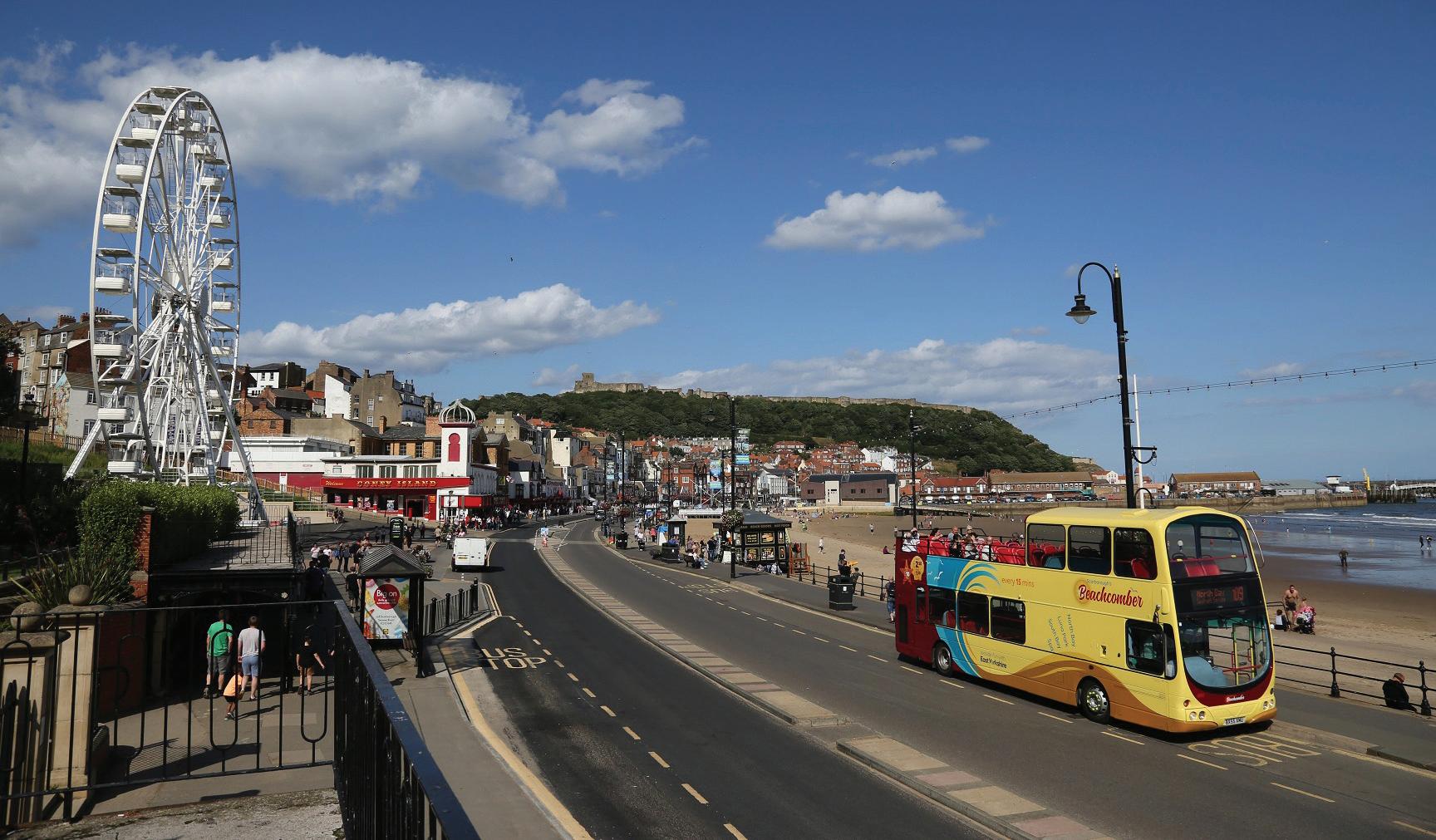
On Good Friday, Go Ahead’s Morebus business launched new Purbeck Breezer open top services, traversing delightful Durdle Door and the quirk of a bus boarding a ferry across the sea. Talented Morebus head of marketing Nikki Honer explains the pull of the open toppers: “I think it’s as simple as it being a very clean honest day’s fun! The views you get from the top deck can’t be achieved with any other form of transport. The Needles Breezer on the Isle of Wight is almost a thrill ride in itself, and where else do you get to go on a bus on a boat!?
“In normal Monday to Friday life, when we are all busy with going to work etc, many people think buses aren’t for them. However, an attractive looking open top somehow doesn’t say bus, it says experience and fun especially when the sun is shining. When you are on an open topper, you only have to look around and people are laughing and smiling at such a simple pleasure, possibly reminding
some of their youth and for others a great way of keeping the kids entertained.”
Last year, Morebus picked up the pieces when Yellow Buses ceased trading to run a route from Bournemouth to Hengistbury Head, with connections from a popular holiday park in Poole to Sandbanks. However, as Honer concedes: “We were doing this with a normal bus which wasn’t screaming ‘fun’! We felt by expanding the Breezer family and giving these buses a fun new look along with some clever marketing activities, that we can generate more customers and encourage more leisure trips. We want people to enjoy our coastline and if we can help them do that by leaving the car at home, the campsite or hotel then even better.”
Morebus has more Breezers than Bacardi and this summer, as well as the original Purbeck Breezers, scenic thrill seekers can ride the Beach Breezer from Poole to Mudeford via Bournemouth, the Harbour Breezer from Rockley Park to palatial Sandbanks and the Jurassic Breezer from Weymouth to Swanage. Weymouth is the ultimate open topper multi-route interchange hub, with First’s own services down the coast to Lyme Regis and Axminster as well as to Portland.
“An attractive looking open top somehow doesn’t say bus”Nikki Honer, Go South Coast
www.passengertransport.co.uk 5 May 2023 | 19
East Yorkshire’s open top Beachcomber buses returned on April 1, running up to every 20 minutes between Scarborough’s North and South bays
I wanted to double check that it wasn’t just coast and scenery that pulled the crowds. So, it was off last week to Edinburgh for a classic open top city sightseeing service on Bright Bus Tours which is now run by McGill’s following their acquisition of First Scotland East. I had a cheeky chat with McGill’s famous top dog, Ralph Roberts, and he implored me to take a fresh perspective on the proposition - he’s excited by the potential of the service.
Ralph’s spreadsheets will confirm what I saw which were humungous queues despite drizzle and an icy blast off the Forth, so windy my toupee was clutching onto my bonce for dear life. Happy customers abounded too, all engrossed in a commentary full of titbits and in a dry, but also laconic Scottish accent, that evoked the days of Robert the Bruce with every turn of the bus, scaling up towards the imposing castle and then down to the Royal Yacht Britannia. The staff in Belisha beacon orange jackets are a garrulous bunch, hoovering up customers off the streets with their genial charm.
It’s not all glory though and it’s vital that these services aren’t successful just because of fab scenery. A manky old bus with rusty poles, departing from decrepit municipal bus stops sans branding, won’t do. Neither will a driver fitting the tired old stereotype of a grumpy authoritarian old bloke who is going to dampen the spirits of any scenic thrill seeker, even if the view from the top of the cliff onto the crystal clear deep blue sea down yonder is spellbinding. The bus industry needs to be able to prove that it can be trusted to take the foundations of a great product - scenery and fresh air - and wrap round it customer service differentiators that make it as high quality and customer-centric a proposition as you’d find at most world-leading tourist attractions.
The fact that it’s an uncomplicated ‘ask’ makes it a tantalisingly possible quest - after all, bus companies aren’t being asked to run something as complex as a fairground in terms of a range of completely different rides, mass queue management, catering, souvenir selling and sideshows. A well-maintained bus stop with an up-to-date timetable and branding visible from a distance is also key. So too, a clean bus with a nice, compelling vinyl on the outside and interior branding that adds to the ambience and route’s narrative.
Of great importance is a beaming,
welcoming driver creating a sense of adventure, stopping the bus for a photo opportunity and regaling tales of the scenery or history of the route or a decent App or recorded live commentary. A plug socket to charge up the phone for when the journey has finished, comfy seats and then a ‘have a great day, thanks ever so much for joining us’ when alighting are also part of the winning formula. In all cases the fares are already great value, particularly with the current governmentbacked £2 offering on many of these routes in England, which is simply incredible.
Of course, marketing is important both of the kind that the local bus folk are doing, replenishing leaflets in hotels and at attractions, as well as the digital marketing that has been mastered by other sectors which can identify and target those with a likely penchant for open top buses.
Having traded in the cricket season for open top tours, I’m not stopping now and there’s the Skegness Seasiders from Stagecoach East Midlands to be sniffed out, as well as their sister company’s paradisical service in Torbay, the Toon Tour, a rumbustious open top sojourn round the bright lights of Newcastle and Gateshead, plus an atmospheric trip on First’s mercurial Dartmoor Explorer when it re-starts in July, traversing the moody but magical moor, which resembles a trip round a safari park,
with buses regularly impeded by marauding wildlife.
The sector needs to look at where affection for its services exists. Open toppers, which by my rough estimate are worth around £30m a year in revenue, invoke the opposite emotions among the public than are normally reserved for conventional bus services. Like preserved steam railways, they bring a smile to the face of customers, conjuring up feelings of happy times and simple, affordable, innocent pleasures, in the company of loved ones, of nostalgia or a sense of impending adventure.
The good news is the bus industry does it well. The even better news is that with not much more effort, it could do it with fantastic aplomb and create an unbeatable product that forever sells itself! See you in Skeggy on Stagecoach’s Seasiders!
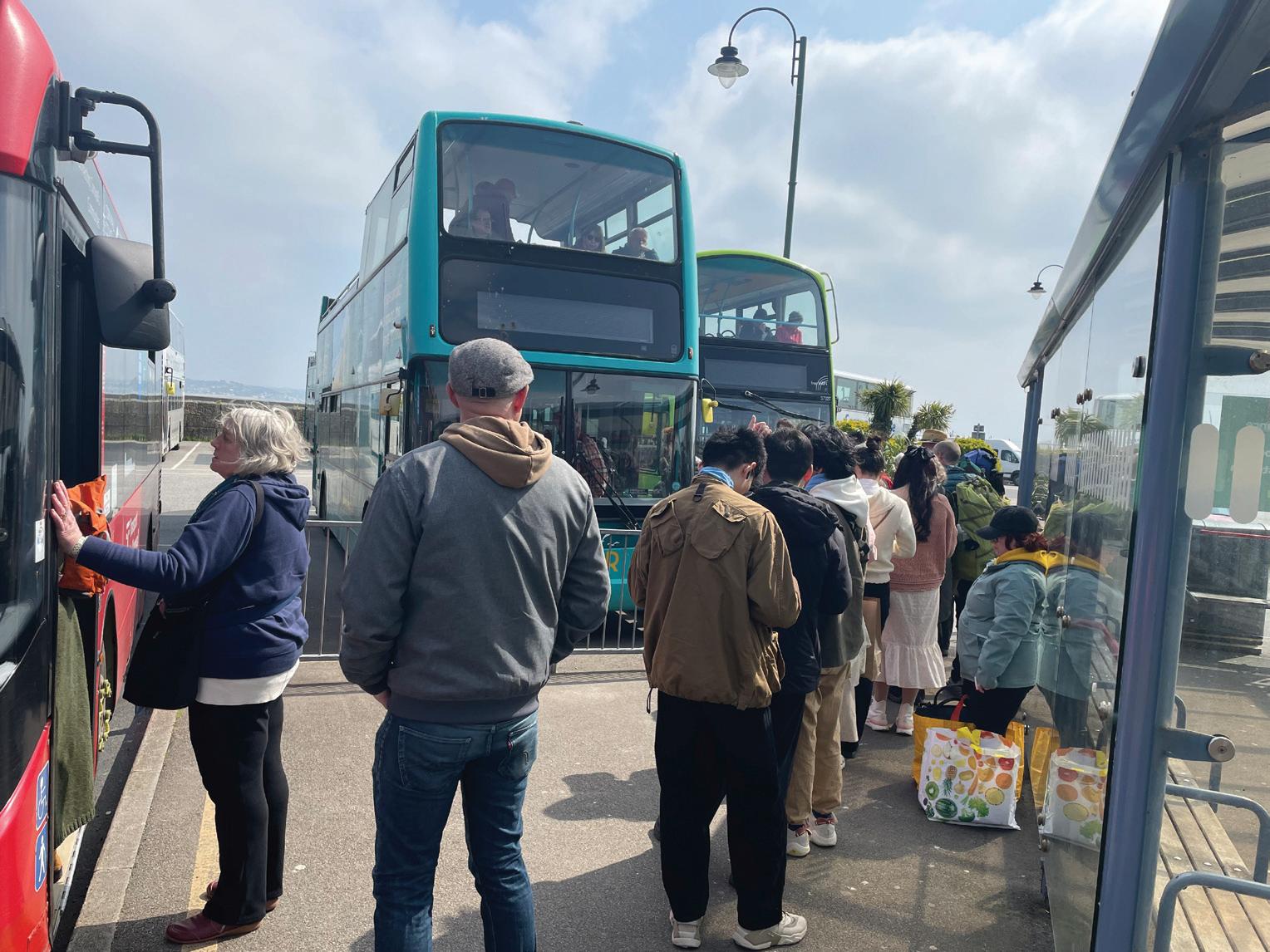
ABOUT THE AUTHOR
Alex Warner has over 29 years’ experience in the transport sector, having held senior roles on a multi-modal basis across the sector. He is co-founder of recruitment business Lost Group and transport consultancy AJW Experience Group (which includes Great Scenic Journeys). He is also chair of West Midlands Grand Rail Collaboration and chair of Surrey FA.
“Like preserved, steam railways, they bring a smile to the face of customers”
The queue for the Lands End Coaster at Penzance last week
20 | 5 May 2023 www.passengertransport.co.uk COMMENT

COMMENT NICK RICHARDSON

Report sets out a huge challenge
The recent report by the TUC and commissioned by Transport for Quality of Life provides a fully researched and authoritative view of the role of passenger transport in addressing climate change. It has benefitted from the insights of many appropriate commentators and is far from sensationalist in describing the massive potential for the sector to play to avoid our headlong descent into a crisis. From the outset it talks about the need for proper funding to achieve the shift from car use that is necessary to meet anything like the targets that have been set for vehicle emissions.
The TUC is well placed to form a view on this issue and involved representatives from ASLEF, RMT, TSSA and Unite trades unions. A key point is that “Britain needs to place a value on public transport services similar to parts of Europe that achieve much higher levels of public transport use per capita” and that a significant modal shift from car is needed. This would require more and better public transport services and while of course it would cost money, the benefits would be very considerable in the form of directly created jobs in manufacturing and construction and a huge amount of indirect jobs and boost to GDP; a host of supporting figures are provided by Transport for Quality of Life. This sounds like good news all round but is regarded as essential if anything meaningful is to be achieved regarding vehicle emissions and tackling the climate emergency.
Clear direction
There are several intertwined key messages: dealing with car use is not an optional extra, investment in passenger transport is a necessity and the costs would be less than the benefits and there are many additional benefits in terms of quality of life. The report emphasises that ‘In the context of a climate emergency the case for rapid expansion of transport investment is overwhelming’. This is indeed the case but there is a political dimension. The fact that the TUC has generated this evidence may not place it at the forefront of the minds of certain decisionmakers but it would be unfortunate (and potentially disastrous) for it to be tainted in this way. It points towards what would be seen

by some as difficult decisions such as taking space away from cars in favour of people and curtailing road construction projects. In the context of climate change these should not be difficult decisions at all but collectively we manage to sweep such things under the carpet in the hope that the problem will go away. It won’t go away and the report presents plenty of reasons why not. What is clear is that the targets set for reducing vehicle emissions and emissions more widely show political commitment but as such are subject to procrastination and undercutting to a point where they represent little more than numbers. To get to anything approaching these targets requires vastly more than has been achieved to date, so something needs to change radically.
As I have said for years, the emphasis should not be on personal vehicular mobility but on mass transit. This means proper development of passenger transport for the masses, not promoting electric vehicles for the relatively few. The benefits would be wider, investment would generate better returns and society would benefit not only through more equitable mobility but also saving costs elsewhere such as the health budget. In practice, this means shifting attention from introducing electric buses simply because they are not fossil fuelpowered, helpful though they are, to supporting a modal shift from car - the emphasis needs to change. In doing so, the reduction in car emissions could be huge and certainly far greater than replacing diesel buses with something else. The realisation is that some decision-makers think that buses and trains
The TUC recently published a report into the vital role the public transport sector can play in tackling the climate emergency
22 | 5 May 2023 www.passengertransport.co.uk
We should focus on development of passenger transport for the masses, not promoting electric vehicles for the few
are somehow the problem, not the solution because they know that most passenger transport is currently propelled by fossil fuel. Some will be of a mindset that thinks that replacing one fuel source with another solves the problem; it doesn’t. Replacing every fossil fuel vehicle with an electric or similar option on the roads doesn’t eradicate pollution, and does nothing for congestion, safety or social inclusion. On the rails, electrification has been stop-start for decades due to a lack of political commitment. Meanwhile, doing motorists and airlines favours by repressing cost increases and building lots more capacity for them is not only inappropriate, it is harmful and completely undermines any strategy that seeks to address climate change.
Not anti-car
We also need clarity about a related matter i.e. it isn’t an approach to demonise cars. Taking a superficial view, moving journeys from cars to passenger transport or walking and cycling will have some casualties in the form of people who begrudge being told what to do. Despite their hostility and the prominence given to them by the media, nothing that investment in passenger transport achieves actually harms them. They can still drive where they want but they might have to pay more and are likely to have other options available; eventually they will die out in favour of a more enlightened population. In the meantime, some restrictions are entirely reasonable in challenging times if it means that the majority of the population benefit. There are plenty of reasons for doing this anyway but the looming climate crisis means that avoiding the issue is not an option.
In fact, many car owners would benefit from better passenger transport. Where good services are in place, a healthy and growing proportion of users have opted to use them rather than the car they have available. It works for rail services, light rail and even bus services. I say ‘even’ buses because there is a widely held view that buses are a last resort to be used only when desperate - to crack this fallacy would be a sign that all is not lost. Where bus services are designed with advantages over car use, they have wide appeal and, yes, car users will be attracted. For those people without access to a car, buses are essential and government needs to understand
that withdrawing services for whatever reason is a failure if hardship results. It doesn’t mean abandoning cars but making relatively mild adjustments to how they are used. Illustration of this is the fact that even a small modal shift makes little difference to car users but makes a massive difference to passenger transport simply because car use, is so dominant. There is however a potential problem here – relieving congestion is likely to make many motorists stick with car use so longer term measures are needed. This may involve the reminder that roads should be primarily for essential journeys such as the movement of goods and trips that cannot easily be made by other means. This balance between private and public means of mobility has never been thought through and there are no signs that it is on the radar.
Dwelling briefly on the past, rail electrification has not materialised as hoped, light rail systems are fewer in number than they should be and bus services have suffered from innumerable problems. In parallel, road spend has carried on as if there were no crisis, demonstrated by traffic congestion which defines the problem. However, adopting the approach set out by the TUC report shows commendable vision and clear benefits for employment and for society. If any government is looking for a means of levelling up and economic growth, this report offers a sound basis.
ABOUT THE AUTHOR

Nick Richardson is Technical Principal at transport consultancy Mott MacDonald, chair of CILT’s Bus and Coach Policy Group and a former chair of the Transport Planning Society. In addition, he has held a PCV licence for over 30 years.
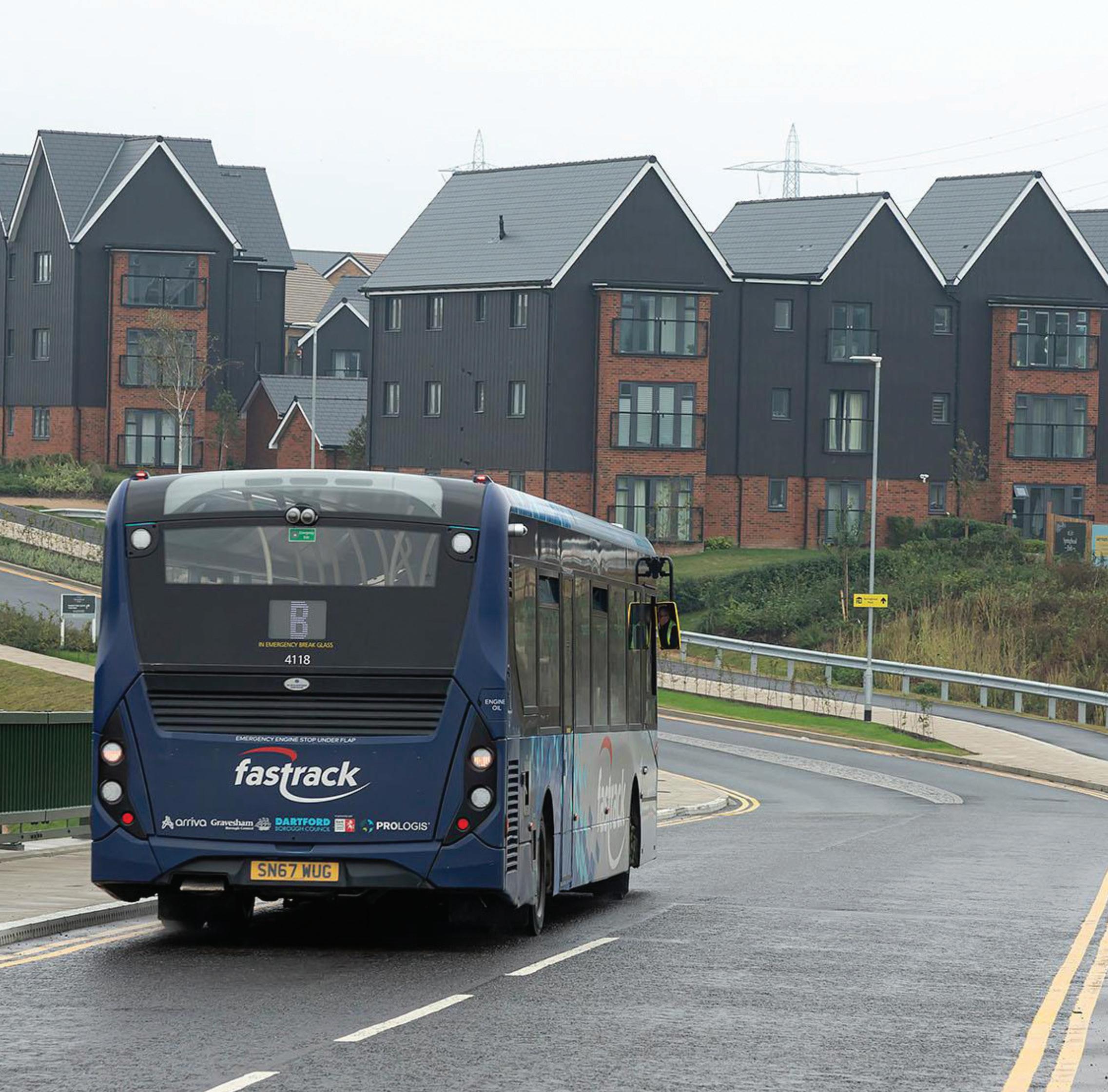
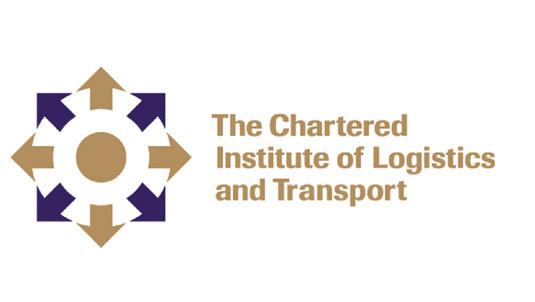
IN ASSOCIATION WITH:
01536 740100 @ciltuk
www.ciltuk.org.uk Tel:
“Some restrictions are entirely reasonable in challenging times”
www.passengertransport.co.uk 5 May 2023 | 23
Fastrack in Kent. Where bus services are designed with advantages over car use, they have wide appeal
ENERGY MARKET REPORT

Can wind really blow away fossil fuels?
Over the last 15 years wind power has been extremely successful in displacing fossil fuel but how efficient is this form of energy?
As we discovered last month (PT286), the economics, ‘green payback’ and public perception of solar energy are all fundamentally sound. But what of its renewable ‘big brother’ wind, which is currently being developed on a far greater scale? How efficient is this form of power generation and how commercially viable? How politically charged is it and can the mass building of giant steel windmills ever be considered as truly green? Harnessing wind energy relies on more basic technology than solar panels and broadly speaking, wind turbines are relatively simple pieces of kit. They are made up of three main parts; the tower, the blades (designed in the style of an aeroplane wing) and the “nacelle” (engine housing for the generator and drive-shaft). The kinetic energy of the wind is channelled in a circular motion to create rotational energy via an electrical generator. Whilst the engineering principles of a turbine are straight forward, the physical stresses placed on 100-metre steel blades travelling 500 metres every second, make for a far from ordinary structure. Reinforced steel (for the tower), concrete (for the base) and fibreglass composites (for the blades) are required to the tune of around 1,500 tonnes (total) per windmill. This means that for every turbine produced, a hefty carbon price has to be paid. Combined, steel and concrete
manufacturing contribute over 15% of the world’s CO2 emissions, whilst the extraction of iron ore (steel) and limestone (concrete) are clearly not environmentally friendly processes. Finally, the assembly and transportation of the turbines themselves rely on giant fuel guzzling machines (trucks, ships, cranes etc).
To entirely replace fossil fuel electrical generation over the next 25 years, it is estimated that a minimum 10-fold increase in the number of wind turbines will be required across the world. This by definition means that our carbon footprint will get dramatically bigger as we manufacture the units to ultimately take us to the promised land of zero-emission electricity. Inevitably there will be much debate around whether “getting worse to get better” is the right approach, but equally, there should be no doubting the efficacy of wind turbines once they are up and running. The latest 15-megawatt (MW) bladed behemoths can power over 2,000 smartphones in one single rotation and over a standard 20-year lifetime, these turbines will generate more than 25 times more energy than it takes to produce them in the first place.
Wind power also has a key geo-political benefit over solar, which is that the industry
is not controlled by China. With turbines, it is actually the Europeans that lead the way and the Americans are catching up fast on the back of Joe Biden’s ‘New Green Deal’, which promises 60,000 new wind turbines over the next 10 years. China’s position is still strong with around 45% of global turbine manufacturing, but almost all of these are serving its huge domestic market. Compare this to the 70%-plus Chinese domination that exists in the global solar industry.
There is always a “however” though and the Achilles Heel of wind power is what happens when the wind doesn’t blow. Unlike solar panels, which, more or less, can generate electricity every day (even on cloudy/rainy days), wind turbines frequently generate zero electricity. This means that for electrical grids to maintain baseload at all times, there has to be a gas-fired power station lurking somewhere in the background, ready to fire up on a windless day. This obligatory “reserve” of fossil fuel power dramatically changes both the environmental credentials and cost basis of running a wind-farm.
Despite this, there can be no doubt that wind power over the last 15 years has been extremely successful in displacing fossil fuel generation and this trend is absolutely set to continue. On most days, at least 10% of Britain’s electricity comes from wind power (sometimes that figure is much higher - up to 40%) and this compares to 2010, when renewable generation was basically zero (less than 1% on any given day). Looking ahead, 80% of (planned) incremental power generation in Europe will be from renewable sources, which means that emission-free electricity is genuinely attainable in our (European) lifetime. This will be an incredible achievement, so the time really has now come to inject a little more honesty and reality into the green debate. Let’s drop the ludicrous idea of immediate “carbon neutrality” as it is simply not possible - other than in the greenwashed imaginations of marketing departments and PR advisers. Decarbonising the grid at speed means the world’s carbon footprint is going to get worse before it gets better and this absolutely highlights why effective CO2 storage is now imperative. Heavy industrial processes come at a high carbon cost and carbon sequestration is the best way to deal with this problem here and now. More on that subject in a future report!
COMMENT WANT TO KNOW MORE? Visit Portland’s fuel forum page: portland-analytics.co.uk/fuel-forum
James Spencer Portland
“On most days, at least 10% of Britain’s electricity comes from wind power”
24 | 5 May 2023 www.passengertransport.co.uk
PORTLAND FUEL ANALYTICS - MAY 2023
GREAT MINSTER GRUMBLES

Will Labour back its bus plan
with cash?
Last week, Labour’s transport spokesperson, Louise Haigh, set out the party’s plans for reform of the bus sector should it win the next general election. It was very predictable stuff! The plans comprise three specific reforms. Labour will allow all transport authorities to introduce franchising without the approval of the secretary of state (currently only authorities with elected mayors can do so); it will make it simpler and easier to introduce a franchise; and it will lift the ban on authorities setting up municipal bus companies.
Or, at least I assume that what Haigh has in mind is to remove the requirement that authorities without an elected mayor must get this department’s approval. Because what Labour’s plan actually says is that it would “extend the opportunity to franchise services to every community, currently only available to metro mayors”. That, of course, is not the case as all authorities can introduce franchising, it’s just that if an authority does not have an elected mayor it must first get DfT approval. I do hope Haigh has done her homework properly!
Haigh claims that these proposals will represent “the biggest reform to the bus sector in 40 years”. In the cut and thrust of party politics it was inevitable that she would make such a bold claim and I guess she is entitled to have her moment in the spotlight. But to say these proposals amount to the biggest reform since bus deregulation is stretching a point, I respectfully suggest. After all, it was the Conservatives who introduced the concept of
franchising in the first place in the Bus Services Act 2017, and the National Bus Strategy even said that the government would look again at the ban on municipal bus companies. But these reform proposals, which doubtless many will welcome, are arguably meaningless unless substantial sums of additional money are made available to transport authorities to enable them to proceed down the franchising route. It’s not cheap, and as under a franchise the franchising authority will take all revenue risk, it is not without inherent risk, and potentially significant cost, if the revenue assumptions that underpin a franchise proposal don’t come to fruition.
So I wonder if Haigh has spoken to the shadow chancellor Rachel Reeve, and got her to sign up to a potentially significant increase in bus funding to enable the reform proposals to actually be implemented. Without extra funding - and lots of it - these reform proposals may have little practical impact. Haigh says that “Labour will fix our broken bus systemand we’ll do it by giving power and control of bus services to the communities who depend on them”. Sure, but without the extra cash how is this going to happen? Have you made an assessment of what it would cost the local or national taxpayer, or both, to actually enable transport authorities up and down the country to take advantage of your proposals?
I suspect the answer to that is a resounding “no”. Without the funding to back up these proposals they are, to be frank, half-baked.
Reforming rail ‘at pace’?
Now to rail. There won’t be a transport or rail Bill until the autumn given that the current parliamentary session has been extended. But when he appeared before the Transport Select Committee on April 19 for a general session on this department’s work our secretary of state, Mark Harper, would not commit to a Bill even being introduced in the autumn after the King’s Speech, saying that many cabinet ministers were bidding for legislative slots in the next parliamentary session for their respective Bills and that the session would therefore be “very congested”. The implication of this is that rail reform, and putting Great British Railways onto a statutory footing, may not be a priority for this government relative to other policy proposals. For me, none of this adds up. The rail clauses of any wider Transport Bill are written. A standalone Rail Bill could be introduced into parliament tomorrow if there really was a political commitment to rail reform. There are other Bills going through parliament of course, and doubtless the parliamentary business managers would not welcome another Bill being introduced at this stage of the parliamentary session. I get that. But the Rail Bill only contains 40 clauses or so, and I’m pretty sure the creation of GBR will be supported by Labour, so the Bill could pass all of its parliamentary stages pretty quickly. Put it like this. If rail reform was a real priority for the government, parliamentary time could be found to push through a Rail Bill. Where there’s a will, there’s a way.
Four-and a-half years on from the announcement of the rail review and almost two years on from publication of the Plan for Rail and what do we have to show for it? With Eurovision almost upon us, all I can say is “nil points”! Harper told the Transport Committee that those aspects of the rail reforms which do not require legislation are proceeding “at pace”. Regular rail users might struggle to spot what reforms these are.
COMMENT
Our Whitehall insider imagines what’s going on inside the minds of the mandarins at Great Minster House, home of the DfT
“Without the funding to back up these proposals they are, to be frank, half-baked”
www.passengertransport.co.uk 5 May 2023 | 25
“If rail reform was a real priority for the government, parliamentary time could be found”
Wrightbus appoints former Lotus CEO
Jean-Marc Gales joins Ballymena-based firm as chief executive
Ballymena-based bus manufacturer Wrightbus has announced it has appointed a new chief executive.
Jean-Marc Gales has spent over 30 years in the automotive industry and brings a wealth of technical, engineering, commercial and sales experience as a senior executive, most recently serving as chairman of Williams Advanced Engineering before its sale to Fortescue Future Industries. In a distinguished career, Gales led the successful turnaround of Lotus as CEO. He was a former CEO of Peugeot and Citroen, where he delivered an impressive new product portfolio, and CEO of CLEPA, the European Association of Automotive Suppliers.
Gales is a board member of
NEW OPS DIRECTOR FOR THE METRO
Nexus appoints Kevin Storey to the key role
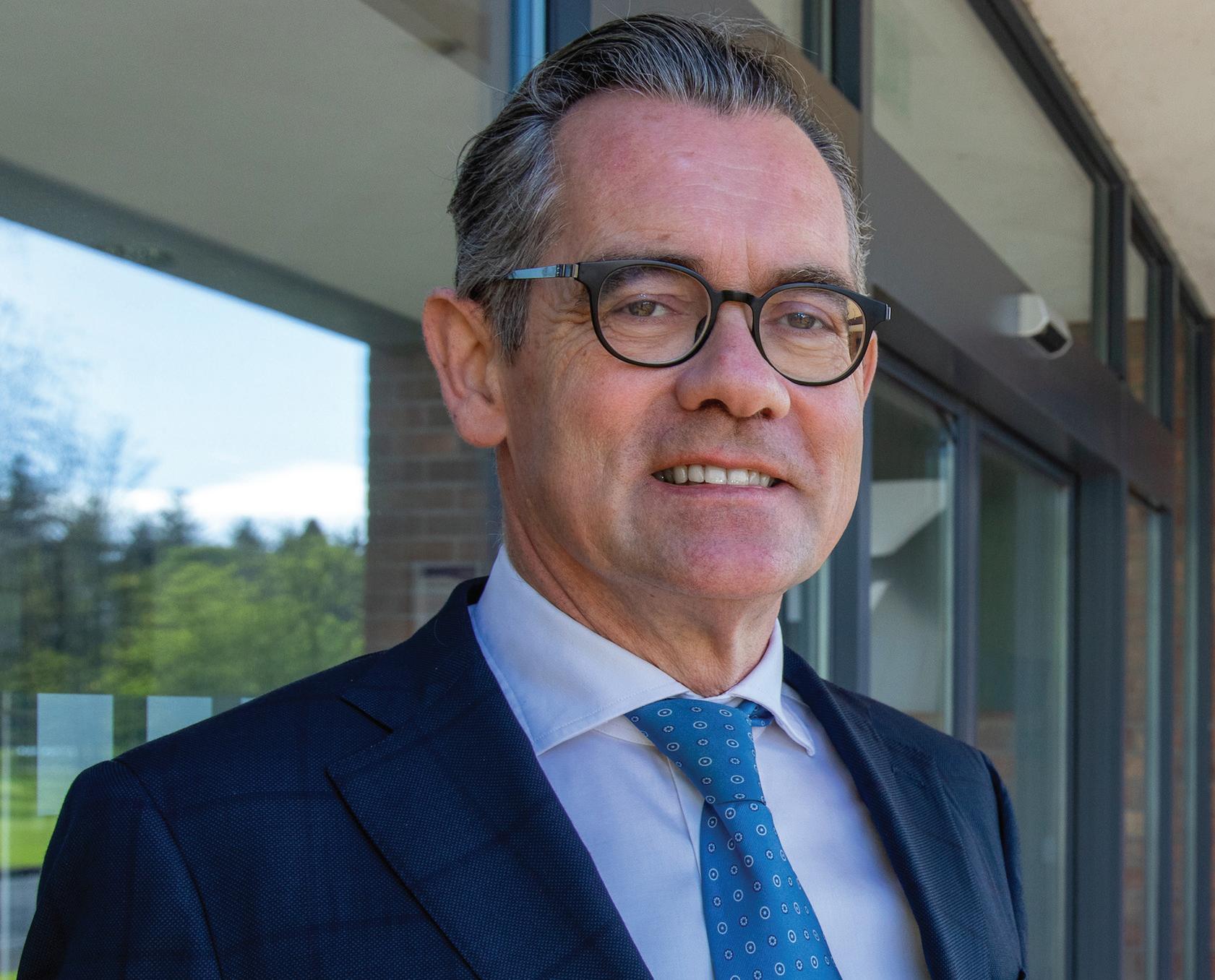
Nexus has announced the appointment of Kevin Storey as operations director for the Tyne and Wear Metro.
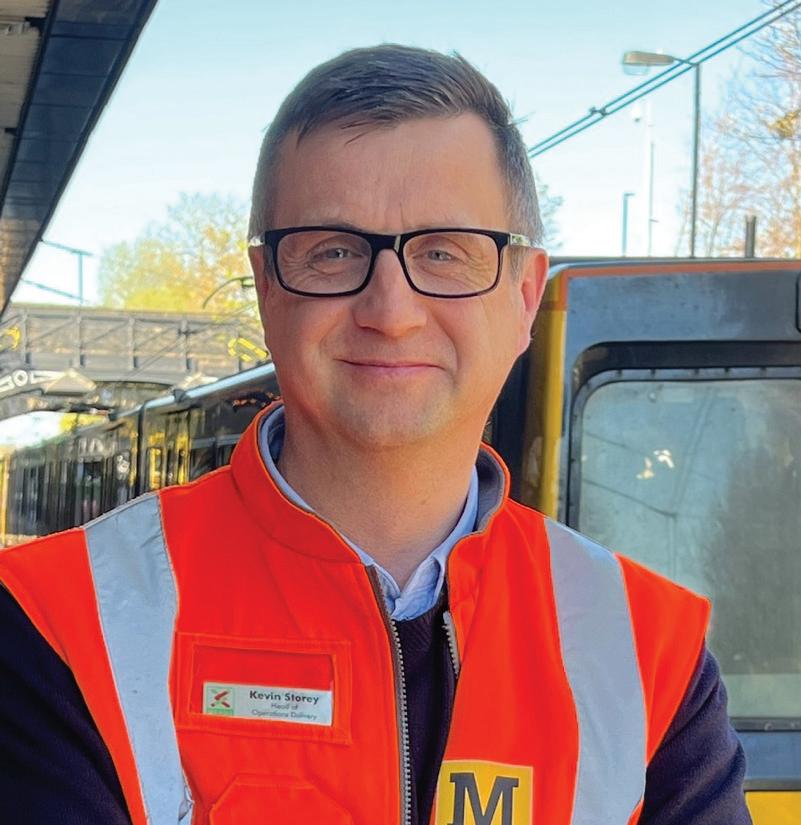
Storey has worked in operations on the system since 2005 and has been promoted into his new role after previously working as head of operations delivery. He has previously led the successful delivery of services for major events including concerts at the Stadium of Light and the Great North Run.
EuroGroup Laminations S.p.A., which recently listed on Euronext Milan after the execution of a successful growth strategy.
The bus manufacturer said Gales joins the company at an exciting time, with significant orders for its class-leading electric and hydrogen powered buses
and plans to develop a green hydrogen production facility at its Ballymena headquarters.
Last month Wrightbus announced it had secured a major order from Stagecoach to supply 48 zero-emission buses for its operation in London. The deal for the double deck Wrightbus
Electroliners comes on the back of a string of new orders, including a £60m contract to supply 117 battery-electric vehicles for First Bus across the UK.
Gales said: “Wrightbus is leading the way in technological advances in hydrogen fuel cell buses, and has developed world-leading efficient electric power trains, used for hydrogen and battery electric powered buses. Our technological prowess places us in a prime position for growth and expansion.
“Our workforce is at the forefront of zero-emission transport and I am very much looking forward to working with, and building on, the talented team in Ballymena, who have driven Wrightbus’s reputation across the UK, Ireland and around the world.”
Jamie Burns, Wrightbus chief financial officer, said: “We are delighted to welcome Jean-Marc to the Wrightbus team. His background in manufacturing and his track record in successfully transforming companies coupled with his enthusiasm make him the ideal person to realise the global potential of our zero-emission technology.”
Commenting on his appointment he said: “I am delighted to be taking up this new role and lead our operations team as we look to a bright future with a new fleet of Metro trains.
“The immediate challenge is to improve our current performance and reliability for our customers, and to play our part in the transition to the new fleet, which will be a historic period of change and renewal for the Tyne and Wear Metro.
“I am acutely aware of the many challenges we have faced with service punctuality and anti-social behaviour on our network. These are two key areas that I will continue to focus on in order to build customer confidence.
Nexus managing director Martin Kearney, said: “It’s a key role managing the day-to-day Metro services and I know that Kevin will bring a great deal of passion, dedication and knowledge.”
GLADSTONE TAKES ON LONDON ROLE
ADL appoints manager for capital bus operator sales
Alexander Dennis has announced the appointment of Neil Gladstone as national account manager – London.
Gladstone has joined the bus manufacturer to provide dedicated sales support to bus operators running Transport for London routes, focusing on zero-emission buses.
ADL said Gladstone brings a wealth of bus and automotive industry experience to the team, having worked for Wrightbus, EvoBus UK and Nottingham City Transport.
Jean-Marc Gales
Kevin Storey
CAREERS 26 | 5 May 2023 www.passengertransport.co.uk CALL NOW TO ADVERTISE 020 3950 8000 or email sales@passengertransport.co.uk
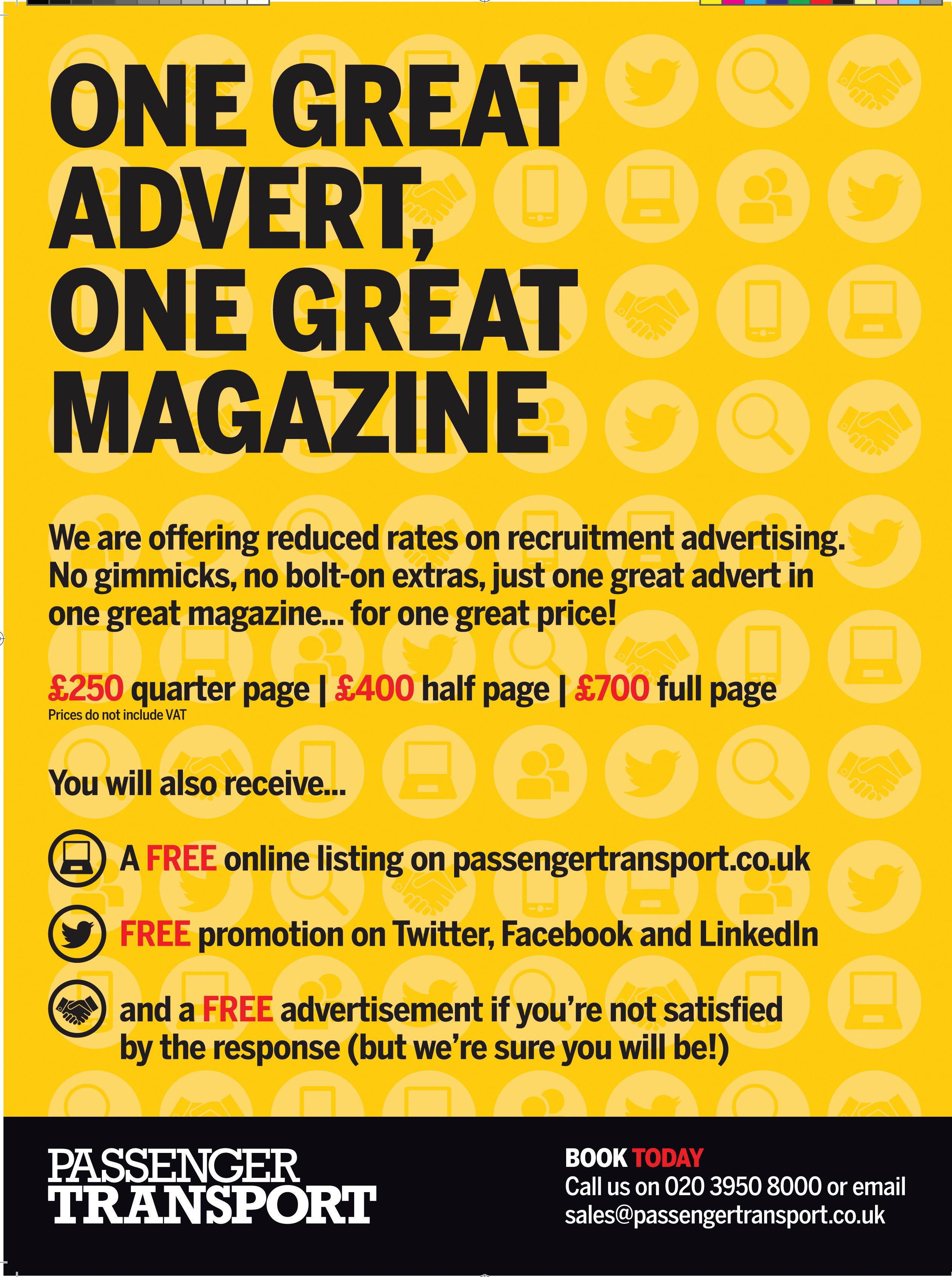
Industry plans a right royal weekend
Bus wraps, ‘Crowndels’ and free seeds on offer
Londoners and visitors to the capital have been starting to see London’s transport network getting ready to celebrate the coronation of King Charles III this weekend.
TfL’s iconic roundel logo has been crowned with a likeness of St Edward’s Crown, which will be used on Coronation Day to crown the King. The special roundels, which Transport for London has dubbed “Crowndels” (geddit?!),can be found at Tube stations around the event area, as well as some Elizabeth Line and London Overground stations, and at key
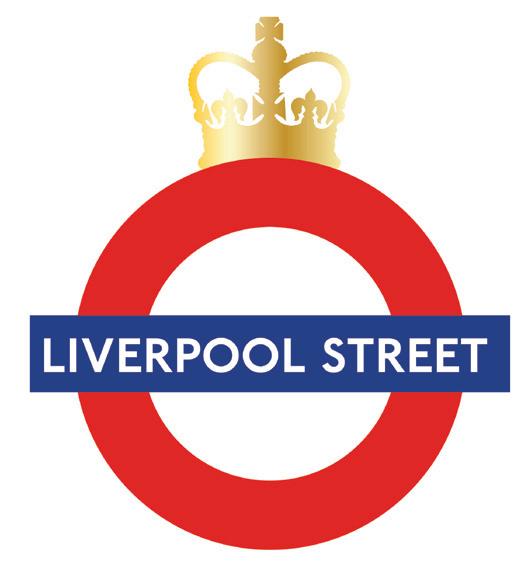
interchange stations.
Meanwhile, five buses with commemorative wraps, which TfL hastens to add have been funded by the operators, have entered service in the capital in four different colours – red, dark blue, cyan and pink. The buses will be on routes taking in some iconic central London locations linked to the Royal Family.

Three bus shelters have also been wrapped with the St Edward’s Crown and 20 limited edition Santander Cycles hire bikes have also received the Coronation treatment.
Of course, Coronation Day
fesitivities are not just restricted to London. In Portsmouth local people will be able to travel for free on local bus services this Sunday in a bid to ensure everyone has the chance to attend one of the Coronation Big Lunches that are being organised.
The move has been made possible as a result of the area’s successful Bus Service Improvement Plan and is designed to persuade more people to consider using local buses.
Meanwhile, Stagecoach is offering bus passengers across the country the chance to win one of three special free bus travel passes valid for a year. Passengers will also have the chance to pick up a limited edition biodegradable card embedded with wildflower seeds, a move the group says aims to reflect its interest in sustainability and local communities.
ALL ABOARD THE ROYAL BUS
It’s well known that King Charles III is keen to modernise the Royal Family, but could he take a leaf out of the book of the Dutch Royal Family?
It seems the ‘slimmed-down’ monarchy of the Netherlands eschews travelling to official engagements by limo and motorcade. Instead King WillemAlexander and Queen Máxima travel the country using the household’s special Royal Bus.
While this particular low floor Berkhoff Diplomat single decker is rather luxurious when compared to its siblings found on the streets of the Netherlands, its use apparently saves time (and money) for the King by allowing him to travel with his staff and security team. Modal shift in action?
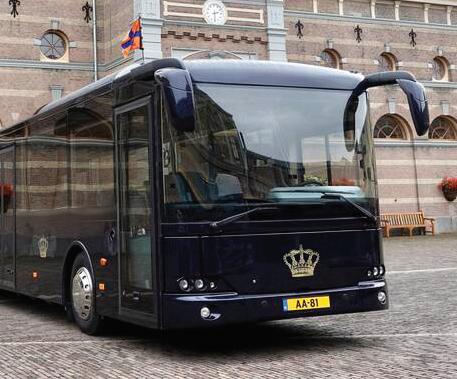
SOMETHING QUIRKY?
not drop us a line at editorial@passengertransport.co.uk
‘Will this take one to the Abbey?’
SEEN
Why
A right Royal arrival
‘Crowndel’
SUBSCRIPTION ORDER FORM All annual subscription rates include delivery by secondclass post, or airmail for overseas. Please note: At present we are unable to provide printed subscriptions to readers based in European Union member countries. ANNUA L SUBSCRIPTION R ATES 1 year UK: £140 Rest of World: £280 2 year UK: £250 3 year UK: £375 WWW.PASSENGERTRANSPORT.CO.UK N A M E JOB TITLE CO M PANY ADDRESS POSTCODE TEL E M AIL DATE PLEASE START MY SUBSCRIPTION TO PASSENGER TRANSPORT CARD NU M BER SECURITY CODE EXPIRY DATE SIGNATURE I enclose a cheque for £ made payable to Passenger Transport Publishing Limited Please invoice my company (official order enclosed) I authorise you to debit my M astercard/VISA/ M aestro/VISA Electron card. Amount £ PT288 Email: subs@passengertransport.co.uk Return to: Subscriptions, Passenger Transport Publishing Ltd, PO Box 5496, Westbury BA13 9BX DIVERSIONS 28 | 5 May 2023 www.passengertransport.co.uk



































